Episodes
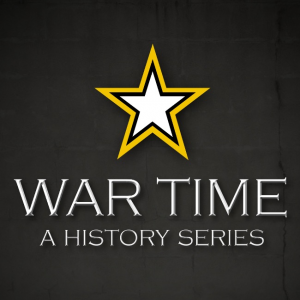
Tuesday Sep 29, 2020
Fault Line: Bush, Blair, and Iraq
Tuesday Sep 29, 2020
Tuesday Sep 29, 2020
The Iraq War came about following a moment of crisis – September 11th, 2001. In real-time, the world watched our leaders react and made decisions based on fast-paced information presented to them, not unlike the moment we are currently facing in our country today. However, the response to the Iraq War led to an all-time low level of public trust in government and media, which is something we never fully recovered from. Each season of The Fault Line will cover defining moments in our history that shook our foundation. On the first season of The Fault Line: Bush, Blair and Iraq, renowned journalist, David Dimbleby, explores the 18 months between 9/11 and the start of the war and how the distrust in leadership response to crisis effects our world today.
The Fault Line: Bush, Blair and Iraq – premieres on September 29th on Apple Podcasts, Spotify, Stitcher or wherever you get your podcasts.
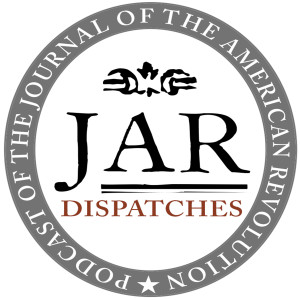
Friday Feb 08, 2019
Friday Feb 08, 2019
Hello everyone! Starting January 6th Brady will now be the host of Dispatches: The Podcast of the American Revolution. Tune in now for the latest in 1776 each week, every week! Our feed will still update with new episodes of Battlefield Pennsylvania starting this summer, but to hear Brady every week search "Dispatches" in your podcast service or visit www.AllThingsLiberty.com

Monday Nov 26, 2018
Monday Nov 26, 2018
While the British army occupied Philadelphia, the insurgent General George Washington was determined to starve it of supplies. Lead by Patriot raider-extraordinaire John Lacey, militiamen burned and terrorized Pennsylvania crops and farms to ensure that their wares could not be sold into the city. In an attempt to reopen supply lines British dragoons took to the countryside to find Lacey's Patriot militia in a seek and destroy mission. This week our guests are Historian Dennis Cook and the National Park Service's Andrew Zellers-Frederick...spared no expense.

Sunday Nov 11, 2018
Sunday Nov 11, 2018
In 1877 America was in peril. As Federal troops struggled to maintain order in the South and defend the rights of freed African-Americans, labor uprising swept across the North and West. Considered part of the "Red Scare," a massive uptick in labor violence saw cities across the north burn, Pittsburgh worst of all. On this episode we discuss the Great Railway Strikes of 1877. Guests are retired Professor Charlie McCollister and author Ken Kobus...spared no expense.

Tuesday Oct 30, 2018
Tuesday Oct 30, 2018
On the eve of the American Revolution, the northeast prepared for war. After both claiming much of modern northeastern Pennsylvania, Connecticut settlers poured into the Wyoming valley. After taming the soil and organizing communities, these "Yankees" established a veritable New England colony within the modern boundaries of Pennsylvania. Feeling slighted, the Penn family waged a partisan war against the Yankees, leading to a civil war between the colonies known as the "Yankee-Pennamite War." On this episode our guests are lawyer Steven Killian and Pennsylvania Historical and Museum Commissioner Bill Lewis...spared no expense.

Wednesday Oct 17, 2018
Battlefield Pennsylvania: The Wyoming Massacre of 1778
Wednesday Oct 17, 2018
Wednesday Oct 17, 2018
In 1778 the true brutal nature of the American Revolution was revealed when Iroquois warriors and Loyalist rangers attacked the Patriot settlement of Wyoming. Known as the breadbasket of the Revolution, the settlers of Wyoming were betrayed by a local loyalist family and subsequently massacred by their attackers. The bloodshed and violence at the Wyoming Valley remains one of the most terrible moment of the American Revolution. On this episode are guests are Bob Mischak and author Mark Dziak...spared no expense.

Monday Sep 24, 2018
Monday Sep 24, 2018
On July 2nd, 1863 the battle for Lee's left flank was on. While the Army of the Potomac and Army of Northern Virginia tangled at Gettysburg, the two sides squared off four miles away at Hunterstown. Pitting Wade Hampton against George Armstrong Custer, Hunterstown represented the most leftward action of the battle, and many consider it a smaller battle in its own right. This week marks the return of four-time guest JD Petruzzi...spared no expense.

Saturday Sep 15, 2018
Battlefield Pennsylvania: The Brodhead Campaign of 1779
Saturday Sep 15, 2018
Saturday Sep 15, 2018
In 1779 George Washington launched what would be his most successful campaign of the entire American Revolution: the destruction of Iroquoia. A three pronged attack from all directions, the Sullivan-Clinton-Brodhead Campaigns reduced the Haudenosaunee world to ashes and ended a centuries' old way of life. On this episode our guest is the devilishly handsome, brilliant, and endlessly funny Brady Crytzer...spared no expense.

Tuesday Jul 24, 2018
BPA S03E08: The Key to the Continent: The Battle of Fort Duquesne
Tuesday Jul 24, 2018
Tuesday Jul 24, 2018
In 1754 the armies of New France descended upon the North American frontier. After building a series of forts connecting the Great Lakes to the Ohio River, the post named Fort Duquesne stood as the key to continent. By connecting vital rivers and lakes, Fort Duquesne was the great beacon of French power in the Western Hemisphere, and united an empire larger than the distance from Paris to Moscow. On this episode our guest is Fort Pitt Museum's Alan Gutchess...spared no expense.

Monday Jul 16, 2018
BPA S03E07: The Battle of McCord's Fort: The War on the Homefront
Monday Jul 16, 2018
Monday Jul 16, 2018
In 1756 the French Empire allied with the disaffected warriors of the Ohio Country. As the Seven Years' War began, these Mingo, Delaware, and Shawnee warriors began raiding the Scots-Irish settlers of the Pennsylvania backcountry. In one of their first raids, McCord's Fort was attacked and destroyed revealing a new level of violence yet unseen along the North American frontier. On this episode our guests are US Army Historian Andrew Newman anf Jonathan Burns of Juniata College...spared no expense.

Monday Jul 09, 2018
BPA S03E06: Wilderness Dogfight: The Battle of Bushy Run
Monday Jul 09, 2018
Monday Jul 09, 2018
In early August 1763, British North America was under siege. Following their great victory during the Seven Years' War, the Crown was rocked when France's former Indian allies continued to wage war. After destroying many small forts and besieging larger one, the collective warriors of the Great Lakes and the Ohio Country sought to push their European enemies off of the continent once a for all. In an effort to liberate Fort Pitt, the largest fort in the Ohio Country, Colonel Henry Bouquet and the Black Watch, the 42nd Highlanders, dueled with the warriors of Guyasuta in the backwoods of Pennsylvania. Bouquet's Scots were the supreme tribe on that day, and Fort Pitt was saved. On this episode our guest is Jack Giblin of the US Army War College...spared no expense.

Thursday Jun 28, 2018
BPA S03E05: JEB Stuart's Folly: The Siege of Carlisle
Thursday Jun 28, 2018
Thursday Jun 28, 2018
On July 1st, 1863 Confederate General JEB Stuart launched a bold attack on the Pennsylvania city of Carlisle. Unbeknownst to "The Last Cavalier," as he shelled the town the rest of the Army of Northern Virginia was engaged in a fierce battle thirty miles south at Gettysburg. Though Stuart was victorious, Robert E. Lee himself would later claim that the cavalry commander's absence was a critical component of the Union's legendary victory. On this episode our guests are author JD Petruzzi and US Army War College Professor Emeritus Dr. Richard Sommers...spared no expense.

Wednesday Jun 20, 2018
BPA S03E04: Fort Ligonier
Wednesday Jun 20, 2018
Wednesday Jun 20, 2018
In 1758, British General John Forbes began his march on the French Fort Duquesne. Along the way he built several forts and posts, but none was more impressive than Fort Ligonier. On this episode our guests are Fort Ligonier's Director of History and Collection Erica Nuckles, and Brad Mooney of Heritage Restorations...spared no expense.

Friday Jun 08, 2018
S03E03: The Black Boys Rebellion: The Rebellion Before the Revolution
Friday Jun 08, 2018
Friday Jun 08, 2018
In 1765 armed rebels surrounded a British fort in the backcountry of Pennsylvania. Led by James Smith, the men opened fire on Fort Loudoun a full ten years before Lexington and Concord and the start of the American Revolution. While many have attributed "The Black Boys Rebellion" as a prologue to 1776, new evidence suggests that Smith's men were attempting to uphold royal authority, not challenge it. On this episode our guests are Andrew Newman and archaeologist Steve Warfel...spared no expense.

Thursday May 31, 2018
BPA S03E02: The Battle of Fort Necessity: Washington's First Surrender
Thursday May 31, 2018
Thursday May 31, 2018
On July 3rd, 1754 George Washington and his men made a stand in the backwoods of the Ohio Country. Surrounded by French soldiers, the young Virginian soon ran out of musket balls and hope. His surrender would become the stuff of legend, and be one of the primary causes of the largest war in world history to that point, the Seven Years' War. Our guests on this episode are Dr. David Preston and Brian Reedy...spared no expense.

Tuesday May 22, 2018
BPA S03E01: The Battle of Paoli: The Making of a Massacre
Tuesday May 22, 2018
Tuesday May 22, 2018
After the Washington's defeat at the Battle of Brandywine, the Continental Army had one last chance to save the city of Philadelphia. Led by "Mad" Anthony Wayne, the Patriots tangled with the Redcoats in the dead of night near the Paoli Tavern. The result was fraught with controversy, and the Battle of Paoli is remembered as a massacre. On this episode our guests are Greg Bray and Matt Kalos...spared no expense.

Monday Mar 05, 2018
BPA S02E08: The Paxton Boys Revolt and the Massacre of the Conestogas
Monday Mar 05, 2018
Monday Mar 05, 2018
In 1763 the peaceable kingdom of Pennsylvania was torn apart by violence. In response to the brutal raids of Indian wars from the west, Scots-Irish settlers on the frontier rose up in rebellion. After murdering the men, women, and children of a peaceful Conestoga village, the partisans turned their sites on the colonial capital of Philadelphia. On this episode we discuss the Paxton Boys Rebellion and the murder of the Contestogas. Our guests on this episode are author Jack Brubaker and educator Mary Ann Robbins...spared no expense.

Monday Feb 26, 2018
Monday Feb 26, 2018
Just one day before the Battle of Antietam, the Allegheny Arsenal exploded. Primarily operated by young women on the homefront, a black powder explosion rocked the munitions hub of Pittsburgh and changed the city forever. Mysteries still remain regarded what caused the explosion, and explosive rounds are still being discovered to this day. On today's episode our guests are Senator John Heinz History Center CEO Andrew Masich and Lawrenceville Historical Society researcher Jim Wudarczyk...spared no expense.

Monday Feb 19, 2018
BPA S02E06: Jumonville Glen: George Washington's First Battle
Monday Feb 19, 2018
Monday Feb 19, 2018
In 1754, a young George Washington recieved his first taste of battle in the wilds of the western backcountry. Fighting alongside Indian allies, Washington's attack on a party of French soldiers known as the Battle of Jumonville Glen remains shrouded in mystery. Our guest on this episode is Brian Reedy of the National Park Service...spared no expense.

Tuesday Feb 13, 2018
BPA S02E05: The Homestead Steel Strike
Tuesday Feb 13, 2018
Tuesday Feb 13, 2018
In the summer of 1892 the workers of the Homestead Steel Works and security forces hired by Carnegie Steel went to war. Known as a watershed moment in the history of American Labor, the Homestead Steel Strike saw full scale combat during the heart of the Industrial Age. On this episode our guests are Rivers of Steel CEO Augie Carlino and retired professor Charlie McCollester...spared no expense.

Wednesday Feb 07, 2018
BPA S02E04: Sporting Hill: Robert E. Lee's High Water Mark
Wednesday Feb 07, 2018
Wednesday Feb 07, 2018
In 1863 Robert E. Lee's Army of Northern Virginia invaded Pennsylvania. On June 30th, 1863 Confederate Lt. General Albert G. Jenkins and Union Major General Darius Couch squared off at Sporting Hill. Just one day before the Battle of Gettysburg, the Skirmish at Sporting Hill gave northerners a small taste of just how terrible the war could be. As it stands, Sporting Hill was the northern most engagement of the Gettysburg Campaign. On this episode our guests are author Cooper Wingert and Jim Schmick...spared no expense.

Wednesday Jan 24, 2018
BPA S02E03: Washington's Blunder: The Battle of Brandywine, 1777
Wednesday Jan 24, 2018
Wednesday Jan 24, 2018
On September 11th, 1777 George Washington's Continental Army was all that stood between Philadelphia and the British Army. Understanding that a great stand would be required to save the colonial capitol, the General clashed with William Howe's Redcoats along the banks of the Brandywine. After a day-long battle Washington failed, and retreated in short order. As a result, the British Army captured and occupied Philadelphia for nine months and delivered one of the most terrible defeats of the American Revolution to the fledgling Patriots. On this episode our guests are authors Michael C. Harris and Bruce Mowday...spared no expense.

Saturday Jan 13, 2018
BPA S02E02: The Burning of Hannastown: Frontier Apocalypse
Saturday Jan 13, 2018
Saturday Jan 13, 2018
Known as a bastion of independence on the American frontier, the Scots-Irish city of Hannastown was considered a vital target of Pro-British forces during the American Revolution. In 1775, a full year before the penning of the Declaration of Independence, Hannastown produced their own document challenging the Crown. As many of the Patriot armies most infamous troops emerged from the town, Seneca warriors razed Hannastown in 1782. It was the greatest Indian victory of the American Revolution. On this episode our guests are site supervisor Lisa Hayes and Dr. Peter Gilmore...spared no expense.

Monday Jan 08, 2018
BPA S02E01: The Whiskey Rebellion
Monday Jan 08, 2018
Monday Jan 08, 2018
In the decade after the American Revolution farmers on the western frontier rose up in rebellion against the new federal government. Believing themselves to be ill-represented and abused, the region known for its whiskey production became a hotbed of sedition. On this episode our guest are Dr. Kevin Kopper and Robert Windhorst...spared no expense.

Monday Nov 06, 2017
BPA S01E08: The Philadelphia Nativist Riots
Monday Nov 06, 2017
Monday Nov 06, 2017
In 1844 the city of Philadelphia exploded into violence and chaos. With recent Irish immigrants coming to America by the tens of thousands each year, Nativist forces across the Northeast began to protest. In the Irish neighborhood of Kensington tensions boiled over, and the result was three days of fighting, church burning, and eventually open combat. On this episode our guests are author Ken Milano and Professor Katie Oxx...spared no expense.

Sunday Oct 29, 2017
BPA S01E07: Escape from Gettysburg, the Battle of Monterey Pass
Sunday Oct 29, 2017
Sunday Oct 29, 2017
In July of 1863 the Robert E. Lee's Army of Northern Virginia attempted to escape Pennsylvania after their defeat at Gettysburg. Moving through a narrow mountain gap called Monterey Pass, they were chased down by pursuing Federal cavalry. The resulting battle was the second largest engagement of the Gettysburg Campaign, and one of the few battles to take place on both sides of the Mason-Dixon Line. Our guests this week are author J.D. Petruzzi and Park Historian John Miller...spared no expense.

Saturday Oct 21, 2017
BPA S01E06: The Heroes of Flight 93, September 11th, 2001
Saturday Oct 21, 2017
Saturday Oct 21, 2017
On September 11th 2001, United Flight 93 out of Newark, NJ was hijacked by four Al-Qaeda terrorists. After the World Trade Center and Pentagon were attacked, forty men and women onboard Flight 93 launched a counteroffensive against the terrorists that hijacked their airplane. In the end the plane crashed in a field outside of Shanksville, PA, but the brave passengers of Flight 93 gave their lives to save countless others. On this episode are guests are author Tom McMillan and NPS Superintendent Keith Newlin...spared no expense

Sunday Oct 15, 2017
BPA S01E05: The Burning of Chambersburg, Civil War
Sunday Oct 15, 2017
Sunday Oct 15, 2017
On July 30th, 1864 a Confederate force under the command of Brigadier General John McCausland captured the city of Chambersburg, PA. A year after the terrible bloodletting at Gettysburg, this time the Southern Rebels returned seeking revenge for union depredations in Virginia. After ransoming the town for $500,000, the Confederate General torched the city filled with noncombatants. The Burning of Chambersburg remains as a shocking reminder of the brutal reality of the American Civil War, and a seminal moment in the conflict. On this episode our guests are former NPS Historian Ted Alexander and Pulitzer Prize nominee Jeffrey Wert...spared no expense.
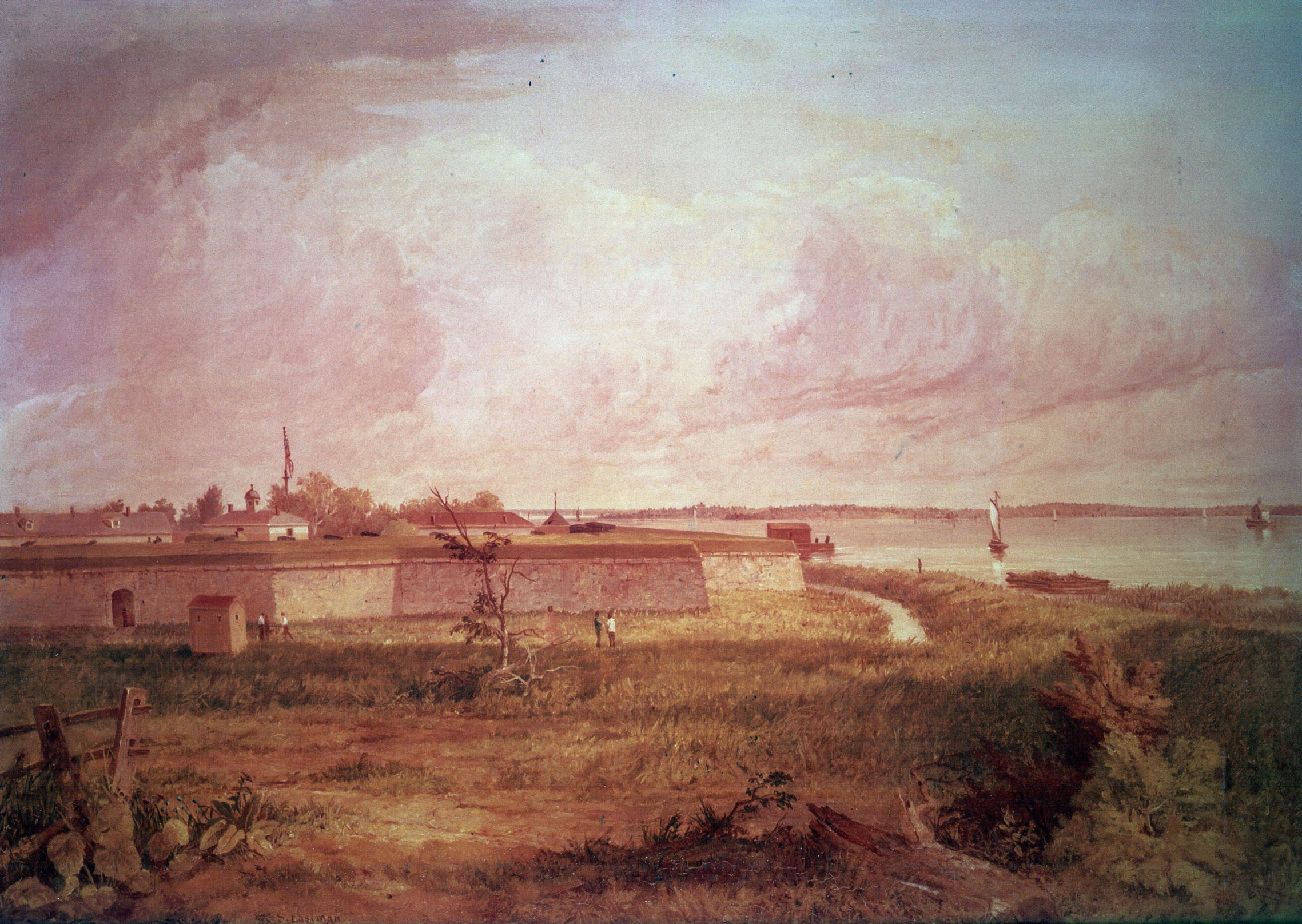
Sunday Oct 08, 2017
BPA S01E04: The Siege of Fort Mifflin, American Revolution
Sunday Oct 08, 2017
Sunday Oct 08, 2017
From September to November of 1777, the British Navy besieged the Patriot post of Fort Mifflin. As the British fully occupied the city of Philadelphia, they needed to import vital supplies up the Delaware River. So long as Fort Mifflin stood, their route was blocked. On this episode our guests are author Tim McGrath and site administrator Beth Beatty...spared no expense.
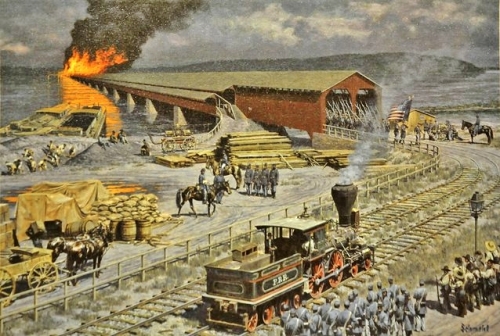
Monday Oct 02, 2017
Monday Oct 02, 2017
On June 28th, 1863 as Confederate forces marched toward Gettysburg, they first tried to cross the Susquehanna River. To do so, rebels under the command of General John B. Gordon first needed to cross the world's largest covered bridge at Wrightsville. A battle against Pennsylvania militia ensued, and the landmark bridge was destroyed. On this episode our guest is author Scott Mingus...spared no expense.

Monday Sep 25, 2017
BPA S01E02: The Battle of Lake Erie, War of 1812
Monday Sep 25, 2017
Monday Sep 25, 2017
In 1813 the paltry American navy squared off with the British navy on the Great Lakes. Lead by Oliver Hazard Perry, the Battle of Lake Erie was a shocking upset and redirected the fortunes of the perilous War of 1812. On this episode our guest is Erie Maritime Museum and US Brig Niagara Director, Captain Walter Rybka...spared no expense.

Tuesday Sep 19, 2017
BPA S01E01: JEB Stuart and the Battle of Hanover, 1863
Tuesday Sep 19, 2017
Tuesday Sep 19, 2017
Welcome to the WARTIME PODCAST NETWORK! On this episode we discuss the JEB Stuart and the Battle of Hanover, a rare example of urban cavalry warfare during the American Civil War. Guests are authors Eric Wittenberg and JD Petruzzi...spared no expense.
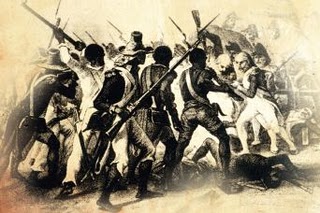
Tuesday Sep 05, 2017
S06E11: The German Coast Uprising: America's Largest Slave Revolt
Tuesday Sep 05, 2017
Tuesday Sep 05, 2017
In 1811 America's largest slave rebellion occurred in the new territory of Louisiana. Skillfully timed and ultra-violent, the rebellion was fueled by the dream of a free republic for freed slaves. With the Haitian Revolution in mind, nearly five hundred enslaved men marched for freedom leaving many dead plantation owners in their wake. After nearly capturing New Orleans, the rebels were tortured and mutilated, and steps were taken by officials to erase the event from American history. On this episode we discuss the German Coast Uprising of 1811.
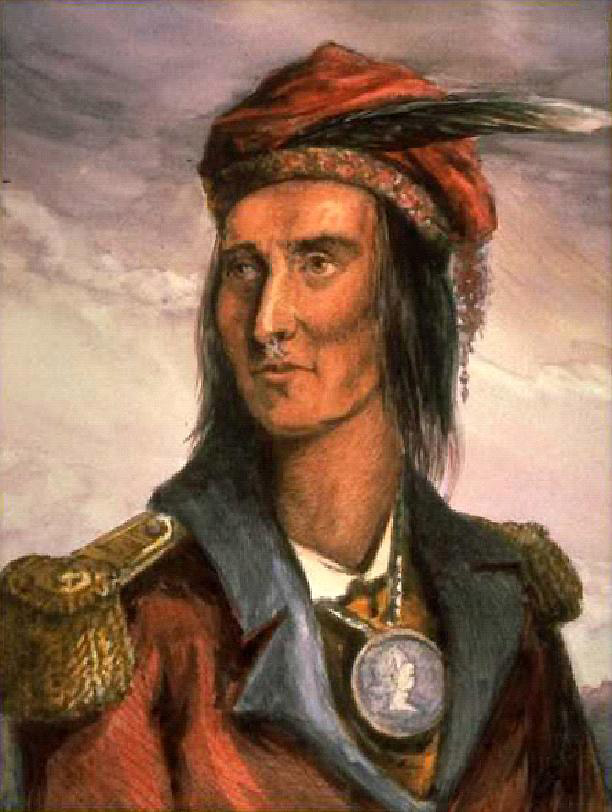
Friday Aug 25, 2017
S06E10: Tecumseh and the Battle of Tippecanoe
Friday Aug 25, 2017
Friday Aug 25, 2017
In 1811 the dream of a unified Indian republic died at Tippecanoe. From a young age the Shawnee warrior Tecumseh fought for a destiny disrupted, a dream lost. Utilizing political skill, warrior prowess, and persuasive action Tecumseh came closer than any other Indian leader to creating a free and independent nation in the American West. On this episode, we discuss Tecumseh's rebellion.

Saturday Aug 19, 2017
EMERGENCY EPISODE: So, About Those Statues...
Saturday Aug 19, 2017
Saturday Aug 19, 2017
On this special emergency episode of WARTIME we discuss the removal of Confederate statues and monuments. We detail their history, meaning, and symbolism. I give my opinion, and you might be surprised...
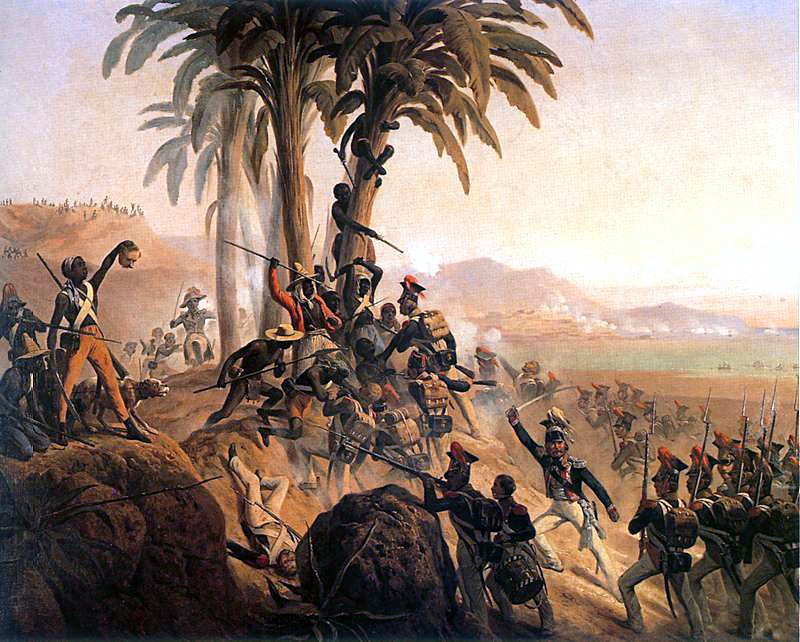
Saturday Jun 24, 2017
S06E09: The Haitian Revolution: A Whole New World
Saturday Jun 24, 2017
Saturday Jun 24, 2017
From 1791 to 1804, the enslaved peoples of the Caribbean’s richest island rebelled for their freedom. Led by a former enslaved man turned successful planter, the rebellion on Saint-Domingue was one of the bloodiest and horrible spells of violence in modern history. Taking many forms and costing thousands of lives, the Haitian Revolution overturned an old order, and put the entire New World on edge. After all the struggle and death, the world would never be the same. On this episode, we discuss the Haitian Revolution.
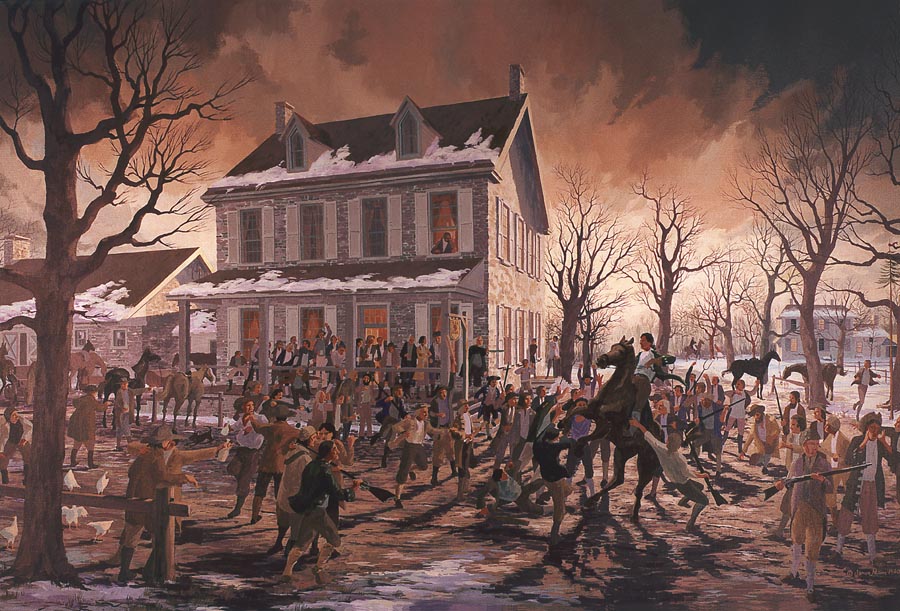
Thursday Jun 15, 2017
Thursday Jun 15, 2017
In 1798 the American nation was embroiled in partisan conflict. With total control of the government, President John Adams and his Federalist Congress prepared for war with France. As part of their planning, the Adams Administration proposed a radical series of new laws including a “House Tax” that stirred resentment throughout the country. One of these groups was Pennsylvania’s vast German minority, and their animosity boiled over into a rebellion just a few miles from the capital city of Philadelphia. On this episode we discuss Fries “Hot Water” Rebellion of 1798.
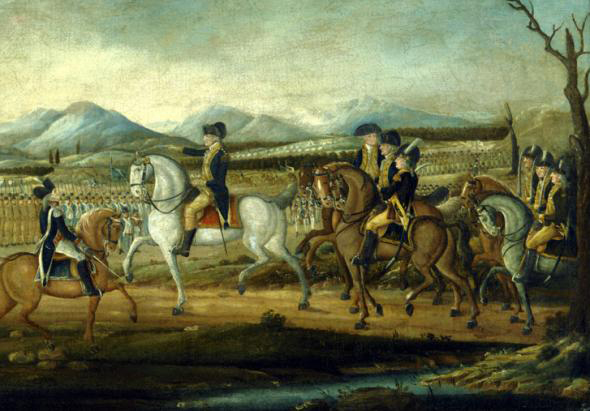
Sunday Feb 05, 2017
S06E07: The Whiskey Rebellion: George Washington's Last Ride
Sunday Feb 05, 2017
Sunday Feb 05, 2017
Just ten years after the American Revolution, the frontier was once again raising arms. Buried in debt, Treasury Secretary Alexander Hamilton placed an excise tax on domestically produced whiskey. Considering it a terrible burden, angry frontier farmers rose up in open rebellion against the United States in the vast Ohio Country. In the end, President George Washington saddled up his horse and led the American army as Commander-in-Chief one final time. On this episode we discuss the Whiskey Rebellion.
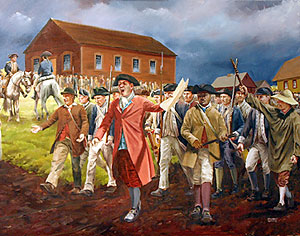
Thursday Jan 26, 2017
S06E06: Shays' Rebellion
Thursday Jan 26, 2017
Thursday Jan 26, 2017
Just three years after the American Revolution, rebellion stirred once more in Massachusetts. When state debts become too great, state officials demanded that backcountry farmers pay their dues at once. With foreclosures skyrocketing under the weight of crushing taxes, Revolutionary War veterans took up arms once more. “No Taxation Without Representation” was back in a big way, and under the leadership of Daniel Shays the rebellion threatened to end the American Republic in its earliest years. On this episode we discuss Shays’ Rebellion.
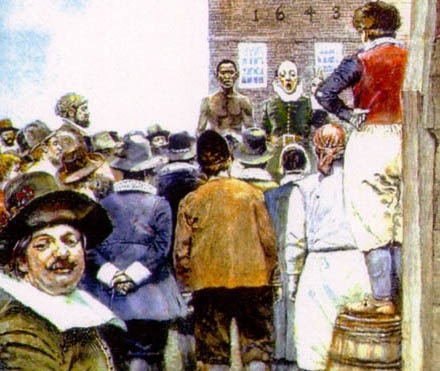
Tuesday Jan 03, 2017
S06E05: New York's Slave Rebellions of 1712 and 1741
Tuesday Jan 03, 2017
Tuesday Jan 03, 2017
By the 1740’s, the city of New York was the second largest slaveholding city in North America. Since its earliest days as a cultural melting pot under the flag of the Dutch, the city held African slaves as a permanent underclass and became a slave trading commercial giant. After being taken over by the English in 1667, tensions amongst the enslaved classes began to boil over into open rebellion, and fear and panic flooded the streets of Manhattan. On this episode we discuss the New York City’s Slave Rebellions of 1712 and 1741.
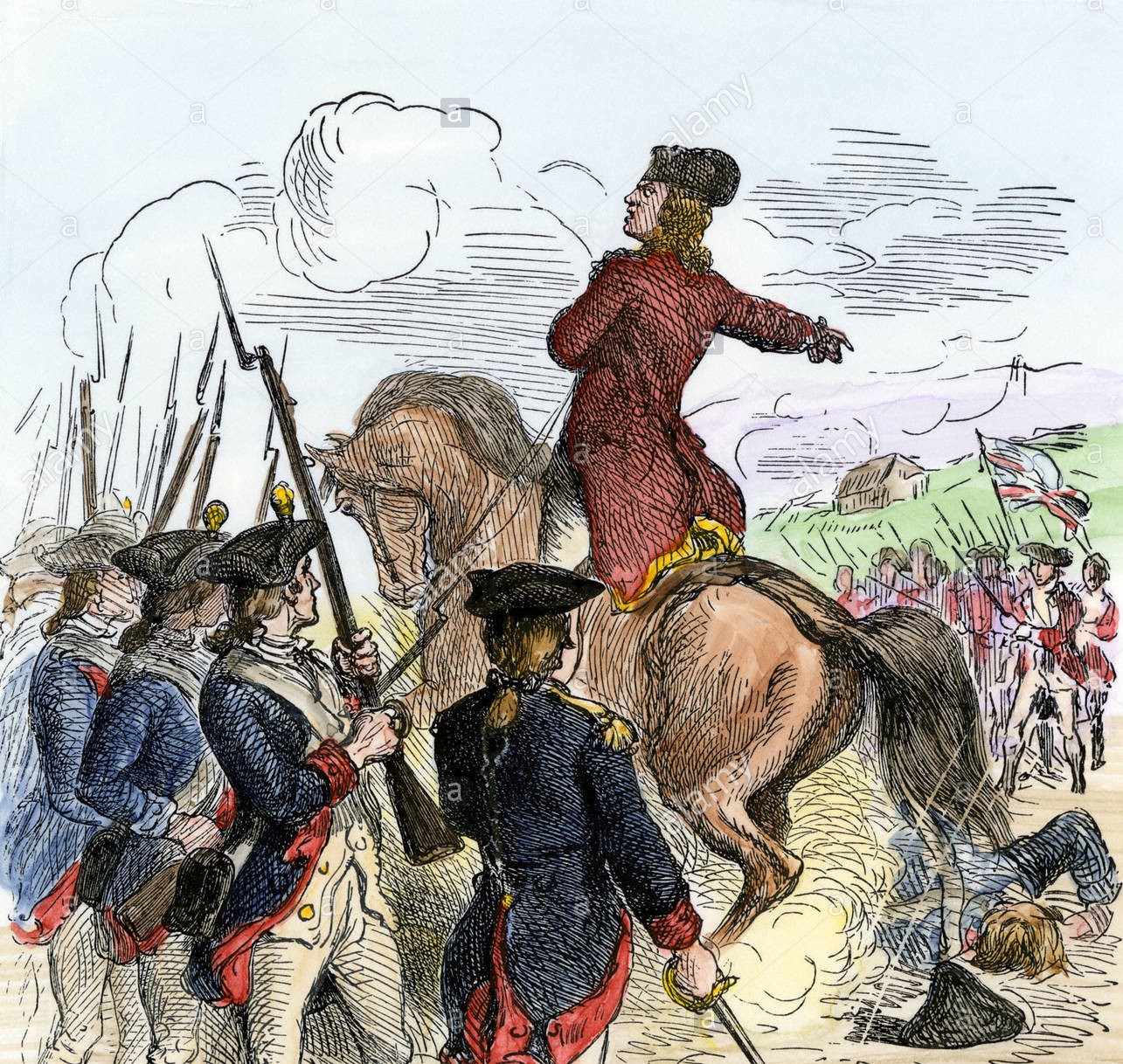
Thursday Dec 29, 2016
S06E04: The Regulators: Rebellion Comes to North Carolina
Thursday Dec 29, 2016
Thursday Dec 29, 2016
A full five years before the American Revolution, backcountry farmers in North Carolina took up arms. While often grouped in with the later Patriot movement, the Regulators were had little interest in royal separation. Instead of fighting as revolutionaries, the North Carolina Regulation was an effort to root out corruption from within the colonial government by any means necessary. Culminating with the now infamous Battle of Alamance, the War of the Regulation remains one of the most contentious actions in the history of Colonial America. On this episode we discuss the Regulators.
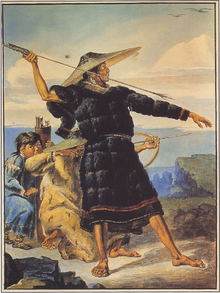
Wednesday Dec 21, 2016
S06E03: Alaska Assault: Russia's Secret American Empire
Wednesday Dec 21, 2016
Wednesday Dec 21, 2016
Following the expedition of Vitus Bering in 1741, the Russian Empire planted its flag firmly in North America. With riches in mind, traders and trappers from Siberia soon found a wealth of furs and opportunity in the great wilderness of Alaska. Although the Russians prospered as North America’s fourth colonial superpower, its unfettered exploitation of the native Aleutic peoples backfired in the form of open rebellion. From 1763 to 1804, Russian North America was plagued by warfare, and the strains of a globalized economy began to take its toll on the tribal societies of Alaska. On this episode we discuss the rebellions of Russia’s secret North American empire.
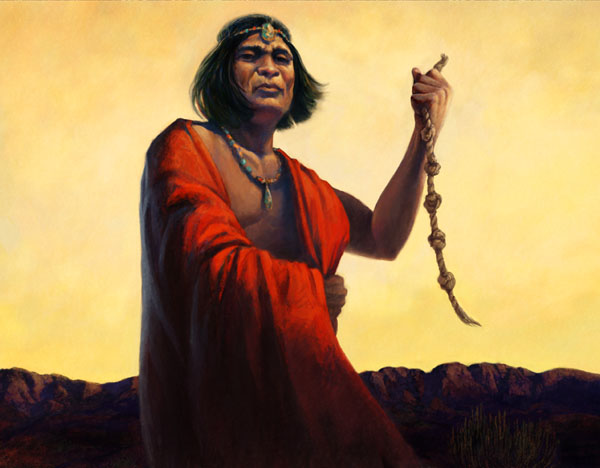
Thursday Dec 15, 2016
S06E02: The Pueblo Revolt of 1680
Thursday Dec 15, 2016
Thursday Dec 15, 2016
In the summer of 1680 a revolution swept through the deserts of Spanish New Mexico. Led by the fabled Popé, the Pueblo Revolt saw native warriors rise up against oppressive Spanish rule in the Rio Grande River Valley. After only two weeks of fighting, Popé’s warriors accomplished the unthinkable forcing the imperialists out of their ancestral homeland, an inspiration to revolutionaries for centuries to come. On this episode we discuss the Pueblo Revolt of 1680.
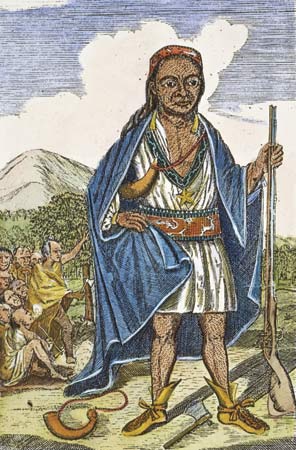
Thursday Dec 08, 2016
S06E01: King Phillip's War: The First Rebellion
Thursday Dec 08, 2016
Thursday Dec 08, 2016
A century before the American Revolution, a sweeping Indian rebellion sent New England reeling. Led by Metacom, known locally as King Phillip, warriors raided and devastated Puritan towns on a massive scale. Considered by many as the bloodiest per capita war in American history, King Phillip’s War left a permanent scar on the psyche of the Puritan’s great City on a Hill. On this episode we discuss King Phillip’s War. It’s the Season Six Premiere!
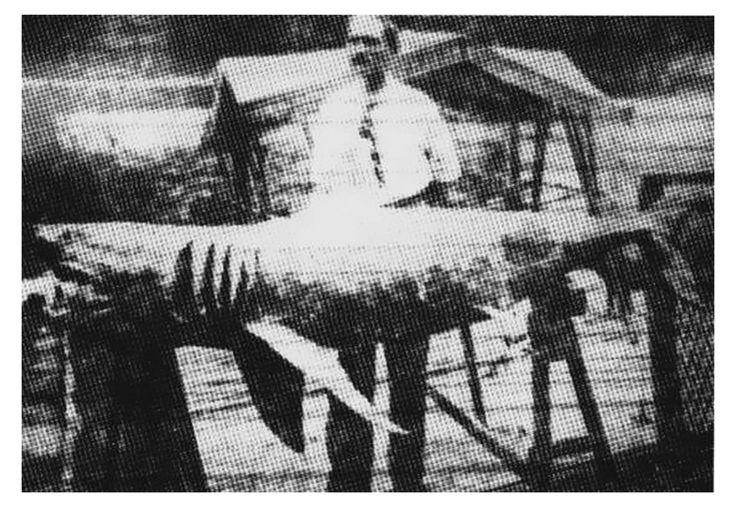
Tuesday Jul 05, 2016
S05E14: The Real Jaws: The Jersey Shore Shark Attacks of 1916
Tuesday Jul 05, 2016
Tuesday Jul 05, 2016
One hundred years ago this week America was gripped in fear and panic. In a span of two weeks, five people were attacked and four were killed as a result of the first shark attacks in modern US history. Known as the destination for the debonair, the Jersey Shore became the scene of a bloody collision of man vs. beast that would ultimately inspire the literary and cinema classic “Jaws”. Most shockingly of all were the deaths of two people in a shallow tidal creek over thirty miles from the open ocean. The search for the Jersey Man-Eater would eclipse World War I in newspaper coverage that summer, and a century later the culprit remains unknown. On this episode we discuss the Jersey Shore Shark Attacks of 1916.
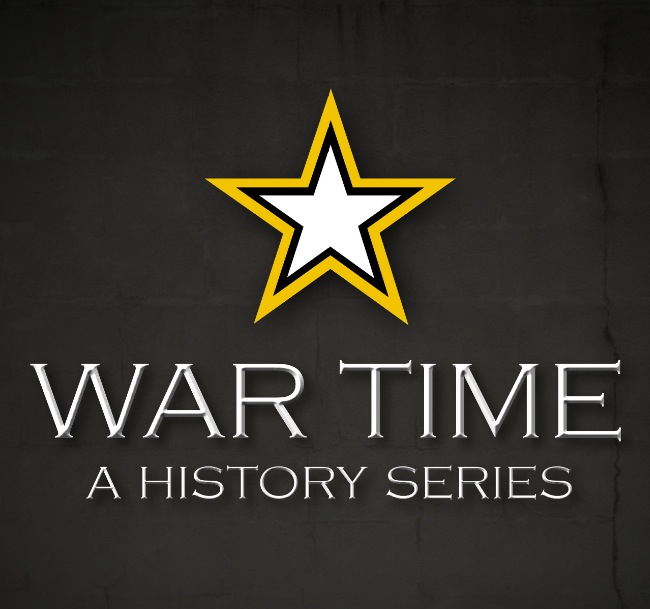
Thursday Jun 23, 2016
S05: Listener Feedback
Thursday Jun 23, 2016
Thursday Jun 23, 2016
On this episode we answer your questions and give away free books. From politics to history to films, Wartime holds nothing back!
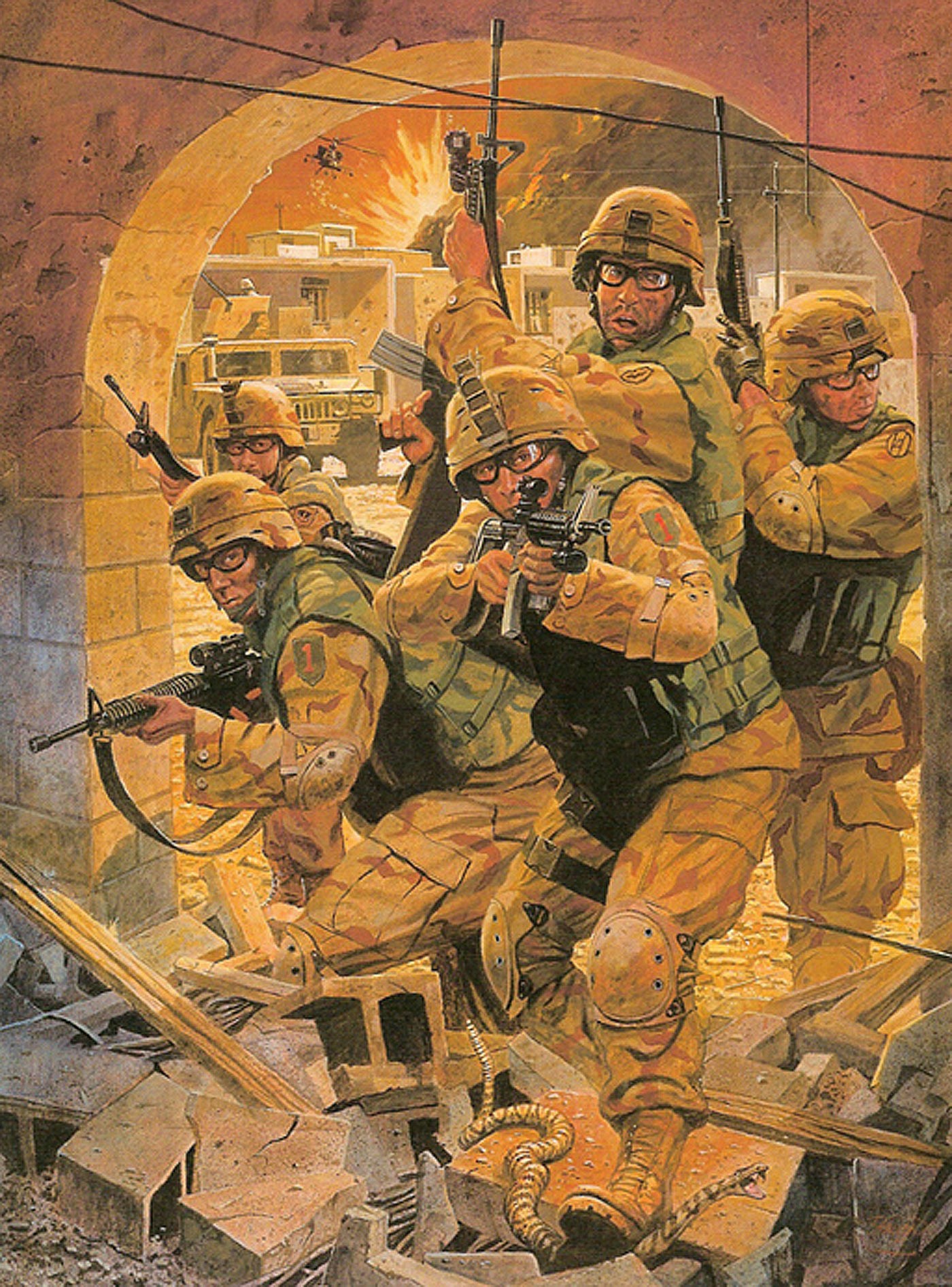
Thursday Jun 16, 2016
S05E13: Operation Phantom Fury: The Second Battle of Fallujah
Thursday Jun 16, 2016
Thursday Jun 16, 2016
Less than a year after the start of Operation Iraqi Freedom, American soldiers were fighting house to house in the city of Fallujah. Known as a hotbed of radical activity, Fallujah saw Coalition forces storming buildings and trading machine gun fire with an almost invisible enemy. Fought by Army, Marines, and Naval servicemen, the month-long struggle known as Operation Phantom Fury stands as the harshest fighting seen by US soldiers since the Vietnam War. After a month of fighting the city was recaptured, and the final chapter remains to be written. On this episode we discuss Operation Phantom Fury: The Second Battle of Fallujah.
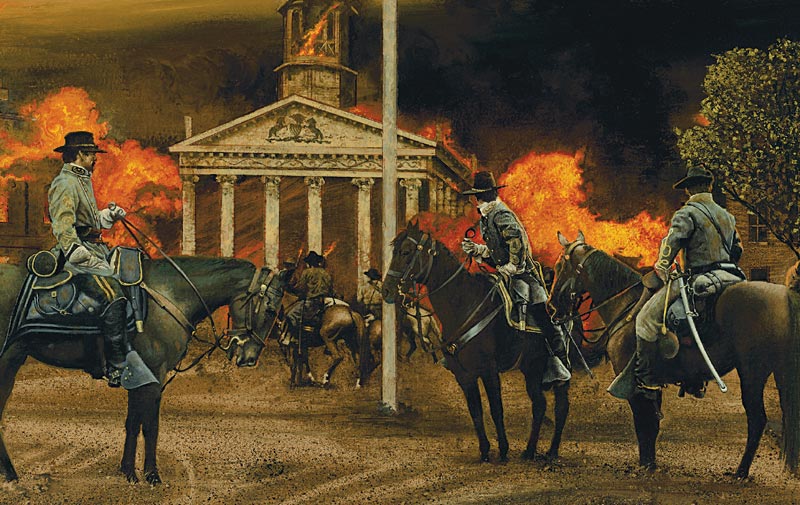
Thursday Jun 09, 2016
S05E12: Confederate Revenge: The Burning of Chambersburg, 1864
Thursday Jun 09, 2016
Thursday Jun 09, 2016
On July 30th, 1864 a Confederate force under the command of Brigadier General John McCausland captured the city of Chambersburg, PA. A year after the terrible bloodletting at Gettysburg, this time the Southern Rebels returned seeking revenge for union depredations in Virginia. After ransoming the town for $500,000, the Confederate General torched the city filled with noncombatants. The Burning of Chambersburg remains as a shocking reminder of the brutal reality of the American Civil War, and a seminal moment in the conflict. On this episode we discuss the Burning of Chambersburg.
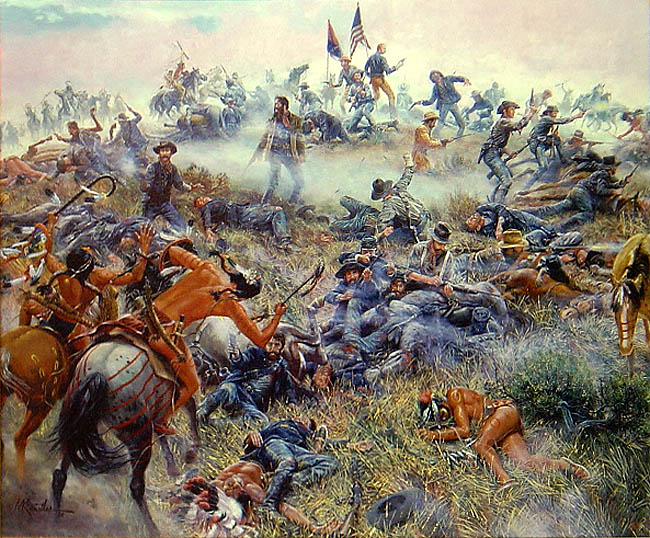
Wednesday Jun 01, 2016
S05E11: The Battle of the Little Bighorn: Custer's Last Stand?
Wednesday Jun 01, 2016
Wednesday Jun 01, 2016
In June of 1876, on the eve of America’s 100th birthday, two armies went to war. Led by the war chief Sitting Bull, the peoples of the Great Plains clashed with George Armstrong Custer’s vaunted 7th Cavalry. Due to negligence on all levels of command and the supreme horsemanship of the Plains Indians, Custer’s men were thoroughly defeated. Now almost 150 years later controversy still swirls around the events that transpired on those grassy Montana plains. On this episode we discuss The Battle of the Little Bighorn: Custer’s Last Stand.
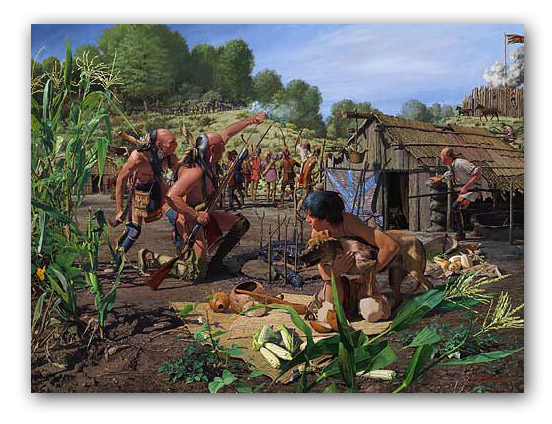
Tuesday May 24, 2016
S05E10: The Kittanning Raid of 1756
Tuesday May 24, 2016
Tuesday May 24, 2016
In 1756 the Colony of Pennsylvania was at war. With the incursion of the French, the Western Delaware peoples of the Ohio Country raided and burned the frontier villages of William Penn’s Peaceable Kingdom. Although the colonial government was staunchly Quaker and did not believe in a standing army, the efforts of Benjamin Franklin rallied the province into action. In September of 1756 Colonel John Armstrong led 300 frontiersmen into the wilderness to raid and destroy the Delaware village of Kittanning. Although celebrated at the time, modern historians question the Kittanning Raid’s true motivations and effectiveness. On this episode we discuss the Kittanning Raid of 1756.

Thursday Feb 11, 2016
S05E09: The Gettysburg Campaign: Lee's Final Invasion
Thursday Feb 11, 2016
Thursday Feb 11, 2016
After two years of combat Confederate General Robert E. Lee moved his army north. At the centerpiece of what is now known as the Gettysburg Campaign the Southern officer planned a full scale invasion of the United States. Although he had tallied numerous victories, it would not be until Lee could persuade northern voters to reject President Abraham Lincoln in 1864 that his rebellion would truly be a success. After days of foraging and skirmishing, the Army of Northern Virginia accidently crossed a Union scout party leading to the largest battle in the history of the Western Hemisphere. On this episode we discuss the Gettysburg Campaign.
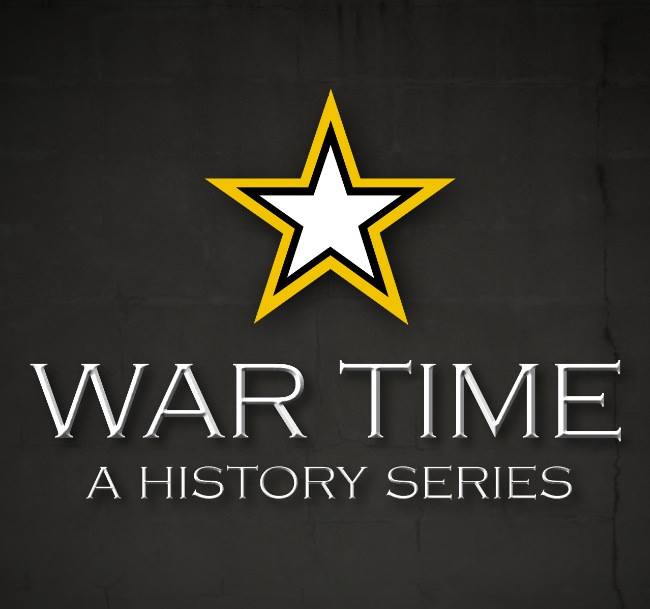
Friday Feb 05, 2016
FREE PREVIEW: Everything You Need to Know About the Confederate Flag
Friday Feb 05, 2016
Friday Feb 05, 2016
Thank you for downloading this special preview edition of Wartime: Everything That You Need to Know About the Confederate Flag. To keep Wartime free for all, this in-depth analysis can be purchased for $2.99 on our website. We appreciate your giving, and this allows us to give back in return! This full version of this episode is available for download at www.WartimePodcast.com. Thank you for your continuing support.

Wednesday Feb 03, 2016
S05E08: Tombstone: Wyatt Earp and the Gunfight at the OK Corral
Wednesday Feb 03, 2016
Wednesday Feb 03, 2016
Called “the town too tough to die,” Tombstone, AZ was made infamous for hosting the now-legendary Gunfight at the OK Corral. In October of 1881, local law enforcement officers engaged a party of suspect criminals in a shootout; despite lasting only thirty seconds, the firefight has become a watershed moment in Western History. Although many have glamorized the moment, the days leading up to the event have shrouded the story in mystery. While some view the gunfight as the ultimate conquest of law and order over disorder, others believe it may have been nothing more than a premeditated assassination against unarmed victims. With the smoke now cleared, controversy is the only certainty. On this episode we discuss the Gunfight at the OK Corral. On this episode we discuss the Gunfight at the OK Corral.
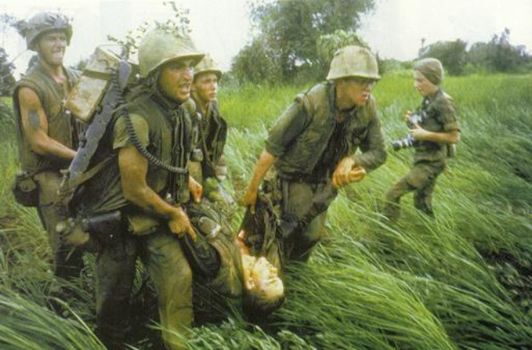
Wednesday Jan 27, 2016
S05E07: Ia Drang: The Vietnam War Begins
Wednesday Jan 27, 2016
Wednesday Jan 27, 2016
For three days in November of 1965 Americans soldiers found themselves surrounded by an unseen enemy in the jungles of Southeast Asia. In what would become the first battle of the Vietnam War, US troops squared off with the People’s Army of Vietnam in the Ia Drang Valley. Badly outnumbered and undersupplied, the American troops fought to defend a tiny clearing in a dense rainforest non-stop for over fifty hours. Though the communist forces were ultimately pushed back by the awesome airpower of the United States, the North Vietnamese gained valuable intelligence on how to wage war against the enemy superpower. For US citizens watching at home and abroad, the battle of the Ia Drang Valley was sent a clear message that the Vietnam War was far from over, and was only just beginning. On this episode we discuss the Battle of the Ia Drang Valley.
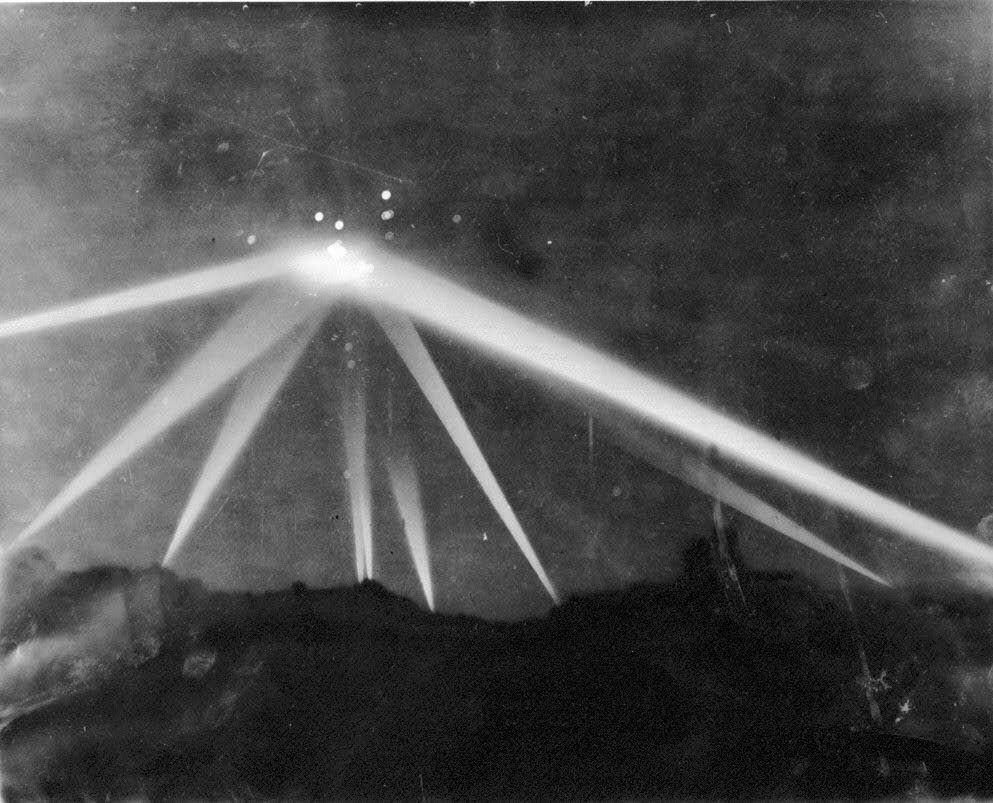
Thursday Jan 21, 2016
S05E06: The Battle of Los Angeles and the West Coast Invasion Scare
Thursday Jan 21, 2016
Thursday Jan 21, 2016
In 1942 the state of California was in panic as rumors of an oncoming Japanese attack swelled to epic proportions. That February a Japanese submarine bombarded an oil refinery near Santa Barbara beginning an irrational Spring and Summer of paranoia and fear. Over the next six months, the Japanese would strike California, Oregon, and British Columbia three more times bringing World War II closer to home than ever before. Amidst the confusion, the city of Los Angeles opened fire on an unknown object for an entire night, only to discover that it was nothing at all. Still called the Battle of Los Angeles, this event has been a hotbed for conspiracy and sensationalism ever since. On this episode we discuss the West Coast Invasion Scare.
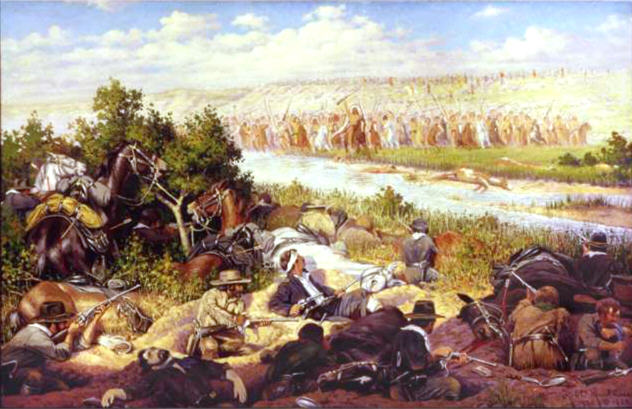
Monday Jan 18, 2016
S05E05: The Battle of Beecher Island
Monday Jan 18, 2016
Monday Jan 18, 2016
As America recovered from its terrible Civil War, unrest was stirring on the Great Plains. As the United States pushed westward, recent railroad construction brought on new conflict with a new enemy. Roman Nose, a warrior of the Cheyenne peoples, had set out to defend his ancestral home from the Americans and soon became the face of resistance in the region. In September of 1868 a party of fifty US soldiers came under attack on a tiny island on the Arikaree River, and for three harrowing days exchanged fire with a party of warriors that outnumbered them ten to one. Although the struggles on the Plains would continue in the years to come, this battle remains a remarkable example of heroism and bravery. On this episode we discuss the Battle of Beecher Island.
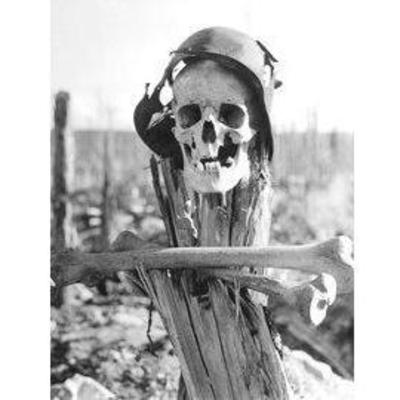
Tuesday Jan 05, 2016
S05E04: Death at -40: The Winter War, USSR vs. Finland
Tuesday Jan 05, 2016
Tuesday Jan 05, 2016
In the midst of the greatest conflict in world history, the Soviet Union began to conquer surrounding nations in an attempt to build their mighty empire. Although some fell without resistance, the Scandinavian country of Finland valiantly resisted their advances. Fought for only five months, the “Winter War” between Finland and the USSR saw some of the worst fighting conditions ever witnessed. Fought in temperatures averaging forty degrees below zero, the USSR finally invaded its northern neighbor with a fighting force that was three times larger than the D-Day Invasion three years later. On this episode we discuss the Winter War.
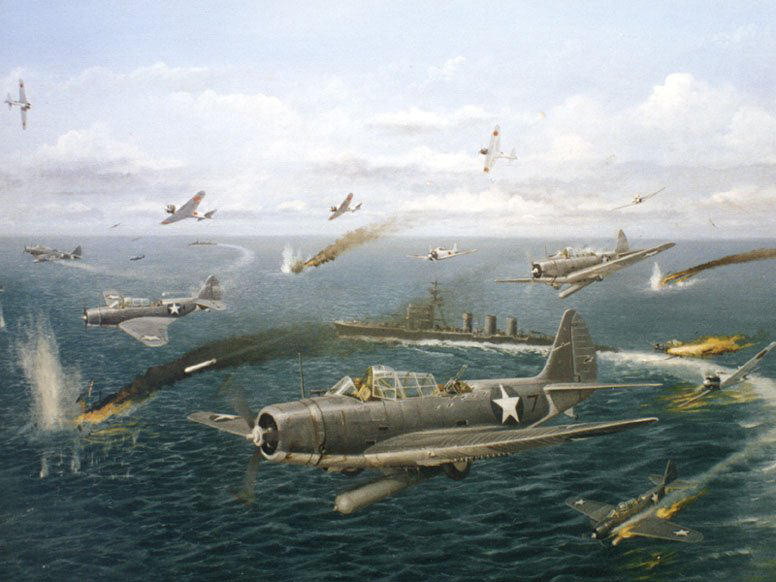
Thursday Dec 31, 2015
S05E03: The Battle of Midway
Thursday Dec 31, 2015
Thursday Dec 31, 2015
Only six months after the bombing of Pearl Harbor, Japanese Admiral Isoroku Yamamoto sought to finish off what was left of the American Navy. Circumstances would be different this time however as American codebreakers learned of the oncoming attack in advance. At the Battle of Midway the US Navy turned the tables on the Japanese and scored their biggest victory of World War II’s Pacific Theater. Although the war was still far from over, many historians speculate that Midway was an early turning point in the conflict that would pay dividends in the years to come. On this episode we discuss the Battle of Midway.
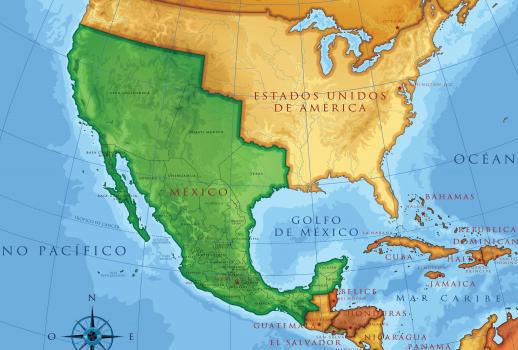
Thursday Dec 17, 2015
S05E02: The Mexican American War
Thursday Dec 17, 2015
Thursday Dec 17, 2015
President James K. Polk took over the White House with a vision, and in in 1846 he set his dreams into reality. Like many Americans at the time, Polk believed in America’s “Manifest Destiny” to take over all of North America. Standing in his way was the newly formed Republic of Mexico, and Polk took extreme measures to manufacture a war that forever change the continent. This conflict would add the entire Southwest to the American nation, and spur the first true anti-war movement in US history. Although few understand its importance today, the long legacy of the war has soured US-Mexican relations ever since and remains critical to understanding the growth of the United States. On this episode we discuss the Mexican-American War.
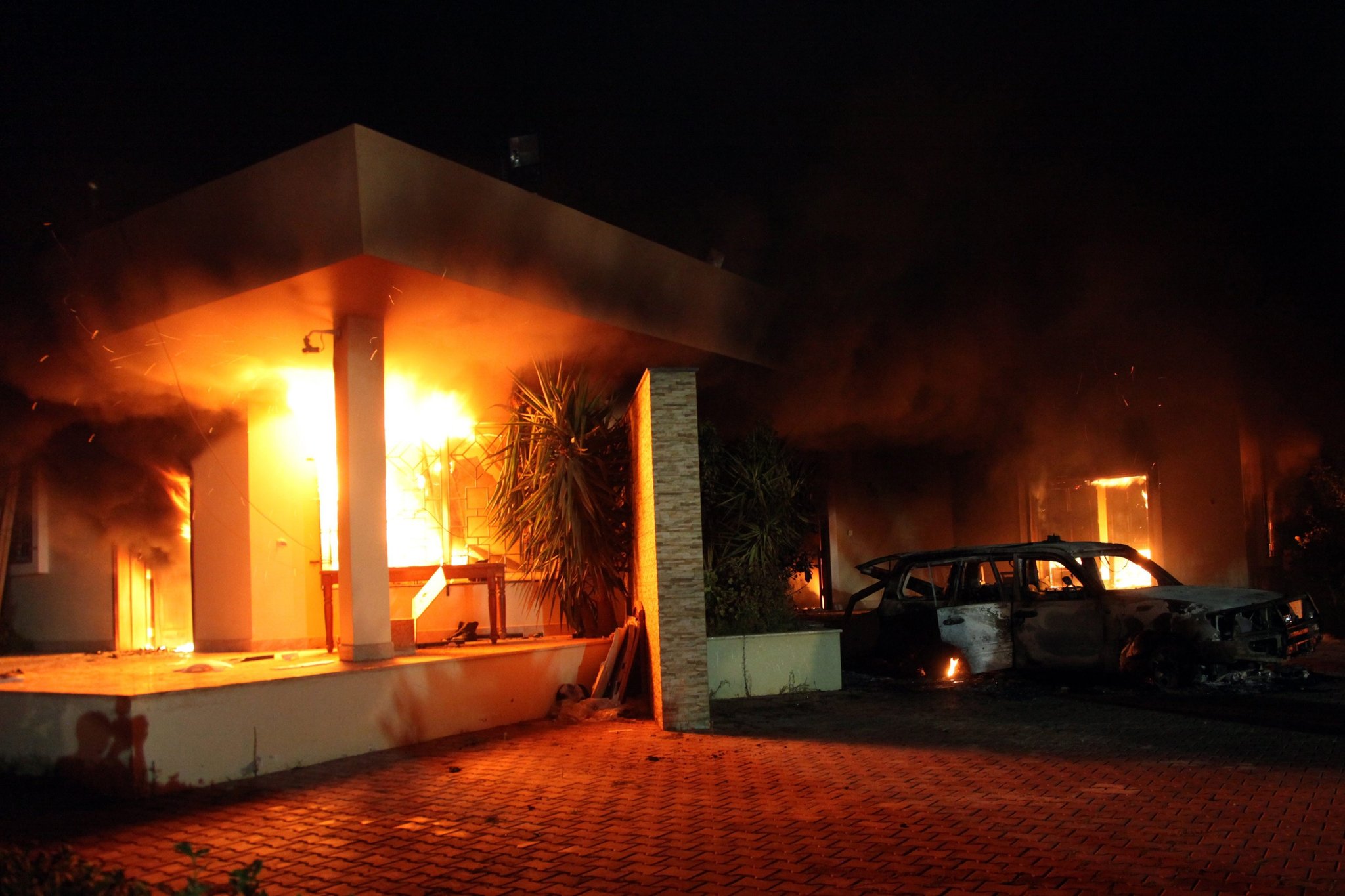
Thursday Dec 10, 2015
S05E01: The Battle of Benghazi, 13 Hours of Hell
Thursday Dec 10, 2015
Thursday Dec 10, 2015
On September 11th, 2012 armed rebels representing the jihadist Ansar al-Sharia attacked an American diplomatic compound in the Libyan city of Benghazi. Greatly outnumbered, a contingent of American security contractors valiantly held off the attack for over thirteen hours. At the end of the fighting countless Libyans and four Americans were dead including a US Ambassador. Now with the 2016 election looming in the distance, lingering questions still remain, and the city’s name will forever live in infamy. On this episode we discuss the Battle of Benghazi.
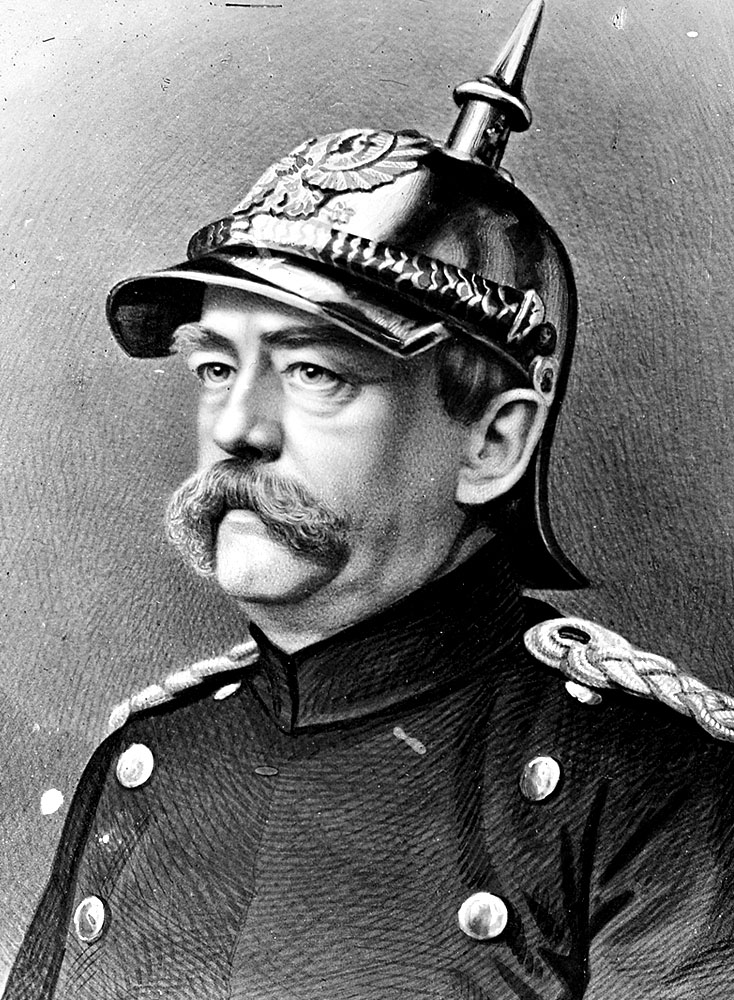
Tuesday Oct 13, 2015
S04E14: Otto von Bismarck, the Iron Chancellor and the Second Reich
Tuesday Oct 13, 2015
Tuesday Oct 13, 2015
“The Great questions of the day will not be settled by means of speeches and majority decisions but by blood and iron.” A Prussian noble by birth, Otto von Bismarck used political cunning a brute force to shake 19th century Europe to its core. Wholly committed to diplomacy at the point of a gun, Bismarck unified the disjointed states of the former Holy Roman Empire into a unified state known as the Second Reich. While he remains the picture of conservatism in the 21st century and a hero of the German people, questions remain about Bismarck’s motives; his achievements however are without equal. On this episode we discuss Otto von Bismarck, “The Iron Chancellor."
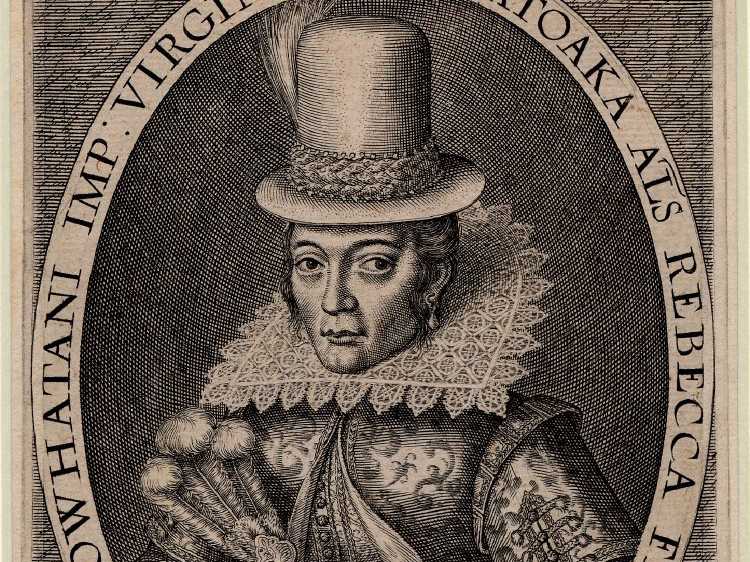
Thursday Sep 10, 2015
S04E13: Pocahontas, the Lady of Virginia
Thursday Sep 10, 2015
Thursday Sep 10, 2015
Known in England as the Princess of Virginia, Pocahontas would become the face of the New World for thousands of Europeans. Although her early life remains a mystery, the arrival of the Jamestown colonists in the 17th century would sky rocket her to fame and bring her people to misfortune. After being the subject of a fictitious major motion picture in the 1990’s, we are more distant from the incredible life and legacy of Pocahontas than ever before. Although she did not paint with all the colors of the wind, she remains one of the most important native figures in North American and European history. On this episode we discuss Pocahontas.
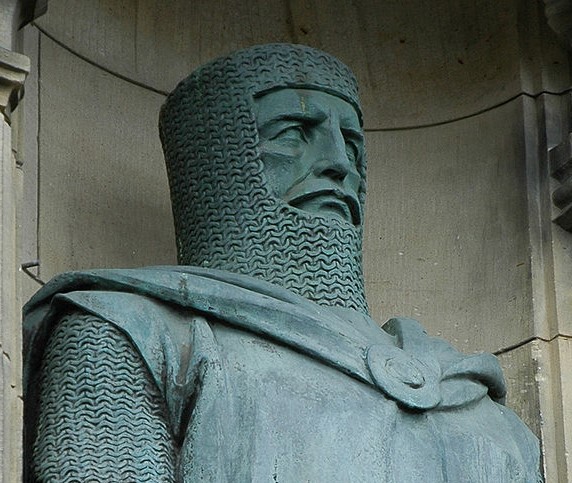
Sunday Sep 06, 2015
S04E12: William Wallace, No Braveheart
Sunday Sep 06, 2015
Sunday Sep 06, 2015
The British Isles found themselves torn to pieces by war, and a new legend rose out of Scotland. Born William Wallace, this twenty-something warrior rose to prominence by showing undying commitment to the cause of independence. A natural leader and a tall in stature, Wallace became the face of resistance to England’s Edward I and revealed a penchant for brute force and violence. Although he was romanticized by the Mel Gibson film, Wallace was no Braveheart, but would become so much more. On this episode we discuss William Wallace.
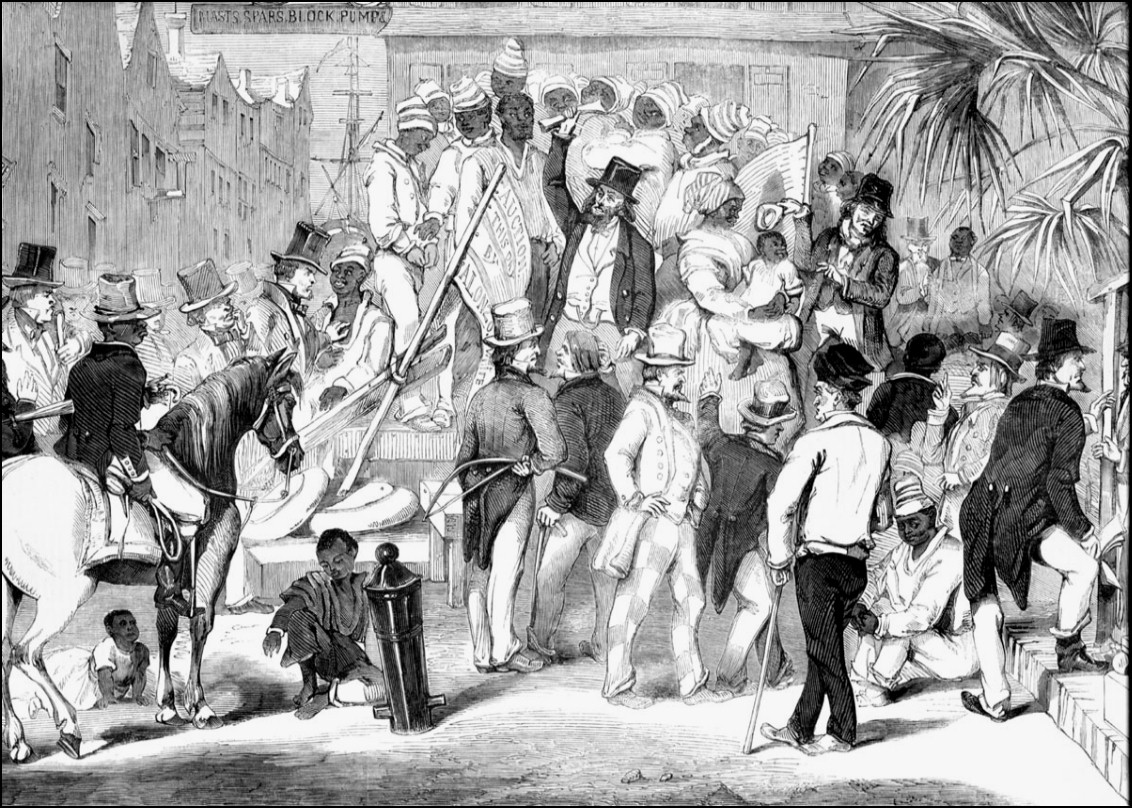
Sunday Aug 30, 2015
S04E11: Denmark Vesey and Slave Rebellion
Sunday Aug 30, 2015
Sunday Aug 30, 2015
In 1822 a former slave took the name of Denmark Vesey and sent the antebellum south into a tailspin. Born in the Caribbean, Vesey purchased his own freedom for $600 and quickly became one of the most visible figures of African-American liberation in the city of Charleston. Though he was himself free, Vesey worked closely with enslaved peoples and organized what would have been the largest slave uprising in American history. Betrayed by his own people and brutally executed, Vesey’s impact aroused the political emotions of the South to pass aggressive new laws that moved the country one step closer to civil war. On this episode we discuss Denmark Vesey.
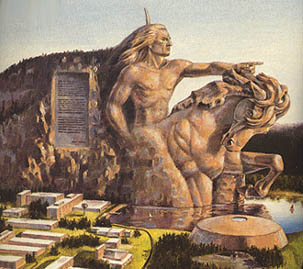
Wednesday Jul 08, 2015
S04E10: Crazy Horse, Defender of the Plains
Wednesday Jul 08, 2015
Wednesday Jul 08, 2015
A member of the powerful Lakota Sioux nation, the young warrior known as Crazy Horse rose to prominence as a quiet defender of the Great Plains. Faced with a relentless incursion by westward moving immigrants from the United States, Crazy Horse rallied one of the strongest resistance movements in the history of North America. Beginning with his witness to many terrible atrocities by white soldiers as a child, Crazy Horse would leave a permanent mark on the growing American nation by defeating its greatest commander at the Battle of the Little Bighorn. On this episode we discuss Crazy Horse, Defender of the Plains.
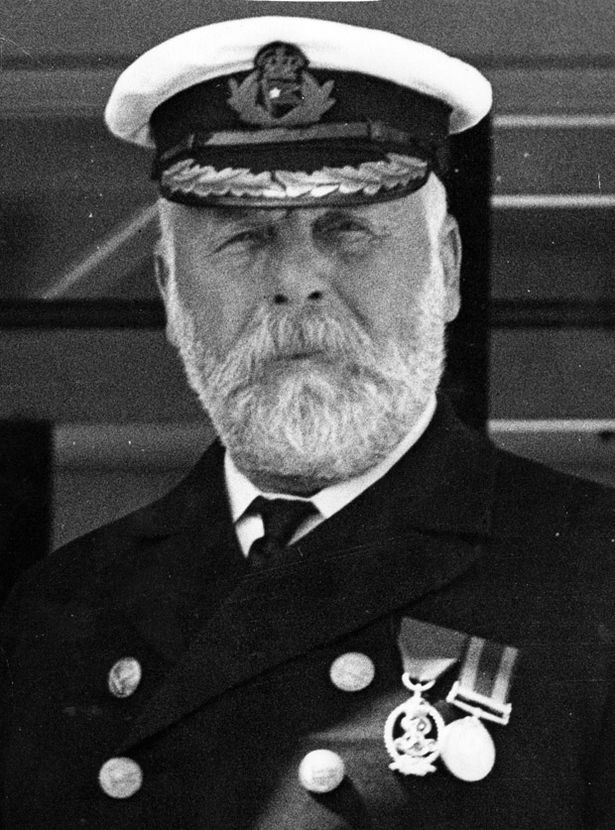
Thursday Jul 02, 2015
S04E09: Captain Edward J. Smith, RMS Titanic
Thursday Jul 02, 2015
Thursday Jul 02, 2015
Captain Edward J. Smith lived a sailor’s life and commanded some of the largest vessels in world history, but his reputation would be forever remembered as the man that piloted Titanic. Although many believe that his actions lead to the massive ship’s 1912 sinking and the deaths of over 1500 souls, many speculate as to his condition to even pilot the vessel. Just one year before Titanic made history, Smith faltered as Captain of its sister ship Olympic, and swore that after Titanic’s first voyages he would retire for good. On this episode we discuss Captain Edward J. Smith, RMS Titanic.
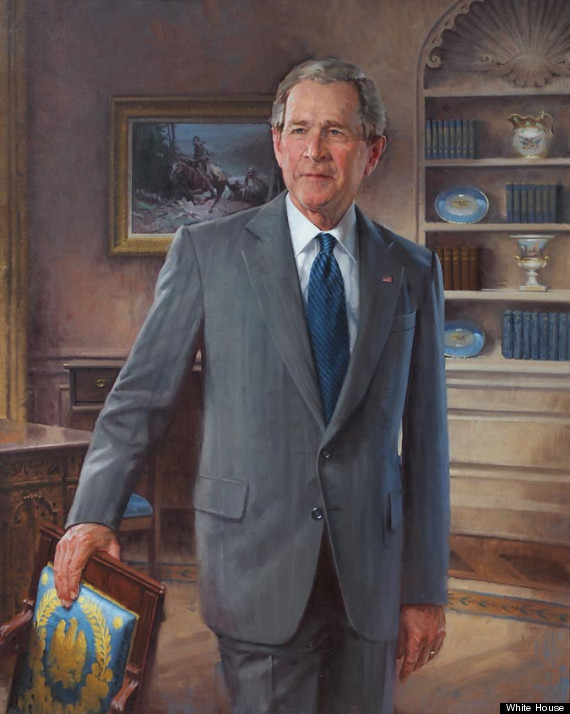
Wednesday Jun 24, 2015
S04E08: George W. Bush: Days of Fire
Wednesday Jun 24, 2015
Wednesday Jun 24, 2015
Born into wealth and taking office after the Disputed Election of 2000, George W. Bush was elected as a peacetime president. Soon after taking office the terrorist attacks of September 11th, 2001 transformed his low-risk tenure of office into one of war and conquest. Although he tallied the highest approval rating in presidential history in the days following the attacks, he would leave office with the lowest public support in modern history. His actions were controversial and his election was contentious, but only after leaving office did his vision for a free and democratic world finally begin to emerge. On this episode we discuss George W. Bush.
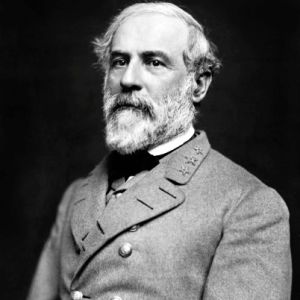
Thursday Jun 18, 2015
S04E07: Robert E. Lee, Hero or Traitor?
Thursday Jun 18, 2015
Thursday Jun 18, 2015
Born into American Royalty, Robert E. Lee of Virginia spent his life in the service of the United States of America. Although he was an avid patriot, upon the beginning of the American Civil War he raised his staff against his own country, and became a living legend in his own time. Long after his death the life of Lee is still debated however as some view him as a hero, while others as nothing more than America’s most famous traitor. On this episode we discuss the life and legacy of Robert E. Lee.
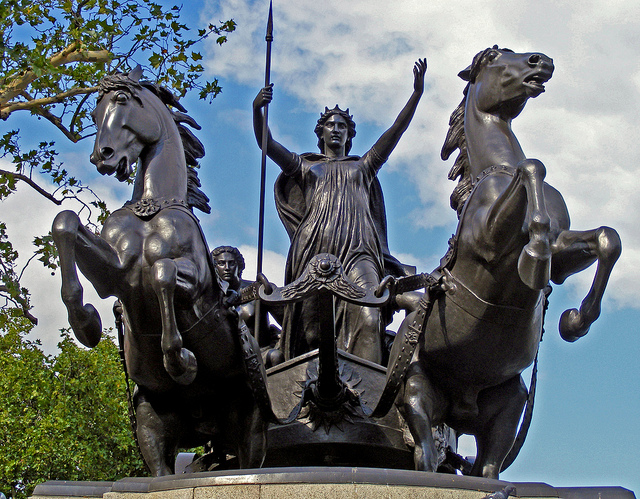
Thursday Jun 11, 2015
S04E06: Boudica, Warrior Queen of Britain
Thursday Jun 11, 2015
Thursday Jun 11, 2015
After a party of Roman soldiers devastated her family the Iceni Queen Boudica staged the largest rebellion in the history of the empire. With vengeance in her heart and a nation at her back Boudica ransacked, pillaged, and plundered her way to victory in Roman Britain. Although there were four Roman Legions nearby, Boudica and her British warriors reduced Caesar’s occupation of Britain to ashes. Just as suddenly as it began however Boudica’s rebellion collapsed when the Roman General Paulinus defeated her army of over 200,000 warriors at the Battle of Watling Street. On this episode we discuss Boudica, Warrior Queen of Britain.
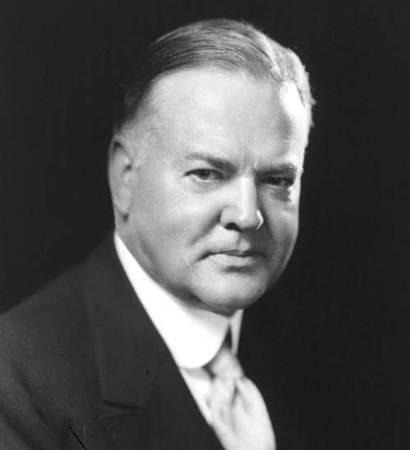
Friday Jun 05, 2015
S04E05: Herbert Hoover, American Nero?
Friday Jun 05, 2015
Friday Jun 05, 2015
From his humble beginnings in the state of Iowa to a prosperous career in international mining, Herbert Hoover would become one of the most beloved figures of the early twentieth century. Using his personal wealth to feed thousands of people, Hoover was considered the ideal presidential candidate in the 1928 election. That year his victory would be so great it would be dubbed “a landslide,” and he appeared set to become one of the most popular presidents of modern time. In 1929 however that all changed as the Great Depression devastated the United States, and millions blamed him for the collapse. Now eighty years later many believe that Herbert Hoover did nothing as his country fell to pieces, however closer inspection changes that narrative in radical ways. On this episode we discuss president Herbert Hoover.
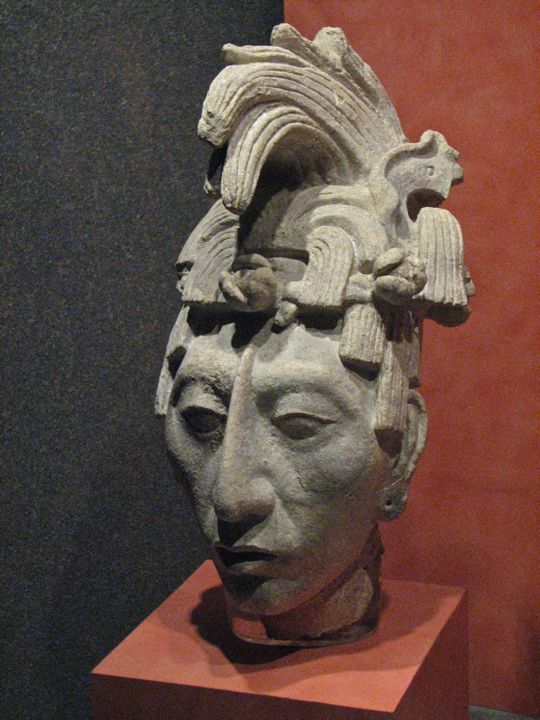
Thursday May 28, 2015
S04E04: Pakal, Mayan Overlord
Thursday May 28, 2015
Thursday May 28, 2015
Lasting 68 years, Kinich Janaab Pakal is the longest reigning monarch in the history of the Western Hemishphere. Starting in 615, Pakal ruled transformed the Mayan city-state of Palenque from an often conquered client city to a regional powerhouse in Southern Mexico. Known for his immense building projects, the discovery of Pakal’s intact tomb has led some to call him the Tutankhamun of the Americas. In a Mayan society fueled by endless competition and brutal war, this great king stands as a giant amongst others of his day. On this episode we discuss Kinich Janaab Pakal, King of Palenque.
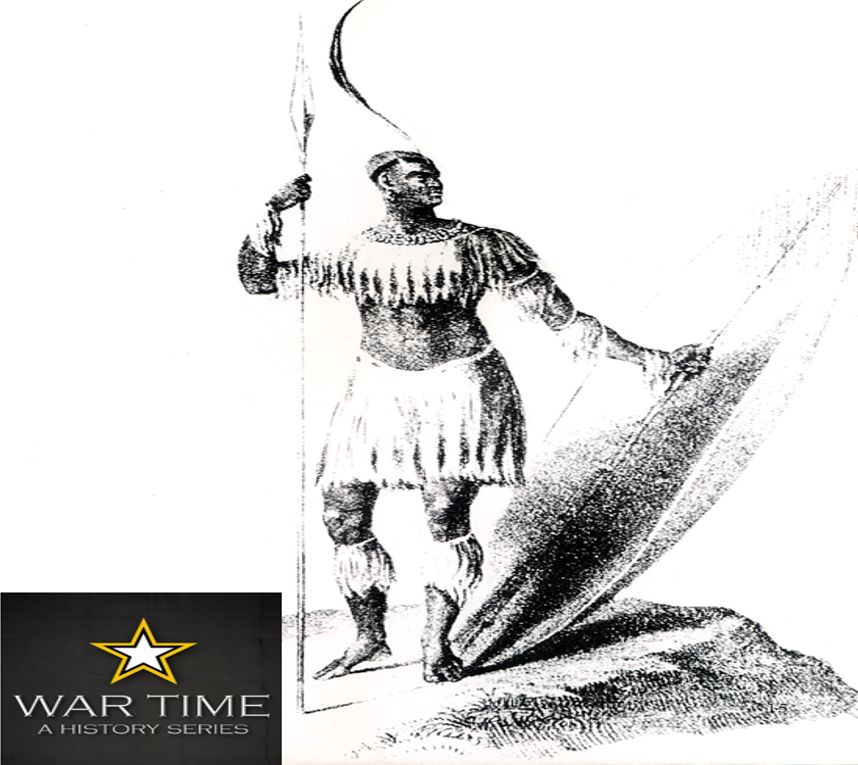
Thursday May 21, 2015
S04E03: Shaka Zulu
Thursday May 21, 2015
Thursday May 21, 2015
In the tumultuous history of Southern Africa one man reigns supreme and his exploits were nothing short of revolutionary. Shaka Zula was born to humble beginnings and ostracized by his father, but through political intrigue and extraordinary violence would come to rule the Zulu nation. Using innovative new tactics yet unseen in Sub-Saharan Africa, Shaka’s reign would become one of brutal conquest and absolute consolidation. By the end of his life the Zulu Empire would be home to over a quarter of a million people and be the premiere superpower of Southern Africa. On this episode we discuss Shaka Zulu, his life and legacy.
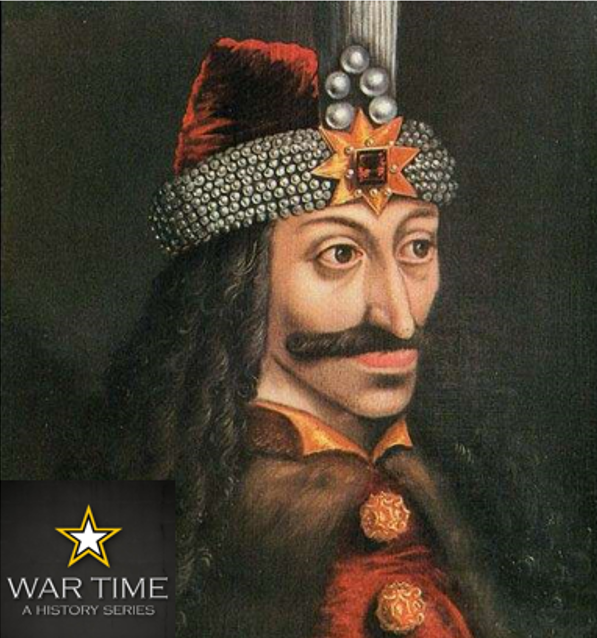
Thursday May 14, 2015
S04E02: Vlad Dracula, The Impaler Lord
Thursday May 14, 2015
Thursday May 14, 2015
Born in the 15th century in the tiny kingdom of Wallachia, Vlad the Impaler instituted a reign of terror unseen in the annals of European history. A despot in his own time and a monster long after his death, this Wallachian warlord set a new standard for violence and oppression. While the rest of Europe was on the verge of a renaissance, the looming threat of Muslim invasion from the Ottoman Empire transformed this murderous tyrant into a defender of Christendom and a hero of the faithful. Years later his death is still a mystery, and interest in his life and times are more popular than ever. On this episode we discuss Vlad Dracula, the Impaler Lord.
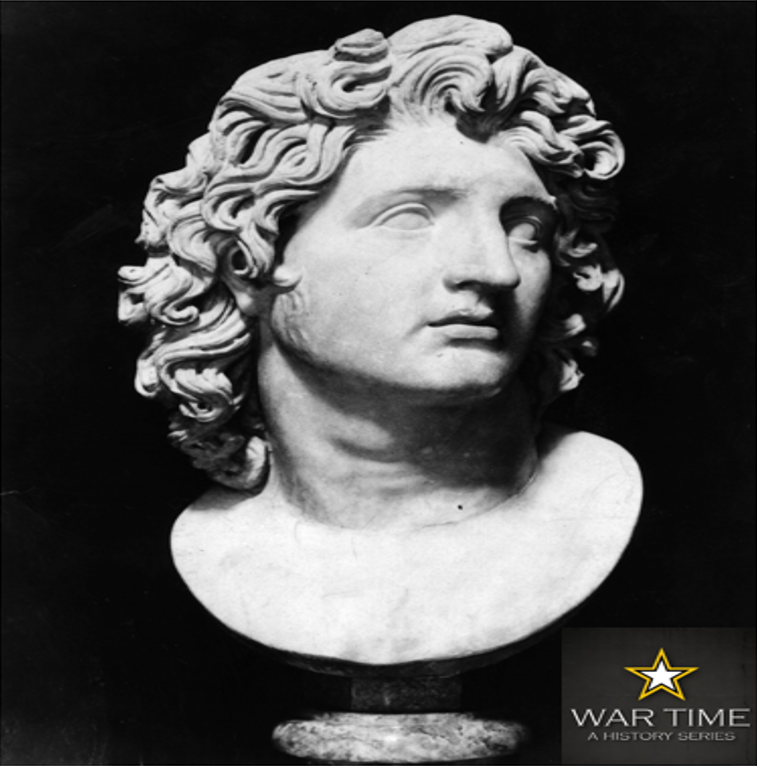
Thursday May 07, 2015
S04E01: Alexander the Great
Thursday May 07, 2015
Thursday May 07, 2015
In the fourth century BCE the Macedonian kingdom conquered all of Greece and eventually the known world. Leading this charge was an ambitious twenty-something named Alexander; the end of his life he would be called “the Great.” But who was this figure, where was his past, and what was his path to glory? On our Season Four premiere we discuss Alexander the Great, the Master and Ruler of the world.

Thursday Mar 05, 2015
S03 Wrap Up
Thursday Mar 05, 2015
Thursday Mar 05, 2015
Wartime celebrates its 50th episode and we close the book on Season Three for good. But what's in store for the future of the podcast? We read listener emails and give away free books! It’s the Season Three Wrap Up.

Thursday Feb 05, 2015
S03E16: Victory at Yorktown?
Thursday Feb 05, 2015
Thursday Feb 05, 2015
With the British Army coursing through the Southern Colonies, the Patriot Movement was reeling. After a disastrous defeat at Camden, new British commander Charles Cornwallis tangled with the American General Nathaniel Greene in the backcountry of the Carolinas. Ultimately, Lord Cornwallis defied the orders of his superior officer and invaded the Colony of Virginia…a maneuver that would seal his fate and the fate of a nation forever. On this episode we discuss the year 1781.

Thursday Jan 22, 2015
S03E14: Hessians: Mercenaries, Rebels, and the War for British North America
Thursday Jan 22, 2015
Thursday Jan 22, 2015
With less than 45,000 troops to their name and crippled by debt, the British Empire was desperate. Knowing that a conscript draft would be unpopular and over budget, Parliament turned to the disunited states of the Holy Roman Empire to fill their ranks. Although often called “mercenaries,” the German soldiers recruited to fight in North America were anything but, and most were forced to serve against their will. On this episode we discuss the Hessians. Remember, my new book “Hessians: Mercenaries, Rebels, and the War for British North America will be released this spring.

Thursday Jan 15, 2015
S03E13: 1779: George Washington Devastates Iroquoia.
Thursday Jan 15, 2015
Thursday Jan 15, 2015
The year 1779 saw the American Revolution take a brutal turn. With the entrance of France and Spain into the conflict, Britain focused its military efforts on protecting interests around the world. With the American rebellion still in full swing, the fighting descending into a terrible partisan war pitting neighbor versus neighbor, and tribe versus tribe. Sensing new opportunity due to foreign money, General George Washington launched a campaign to eliminate the Iroquois from the face of the continent by ravaging their homes and families. While most of the warriors were busy fighting rebels, three Patriot armies laid waste to all of Iroquoia leaving only smoking ruins in their wake. On this episode we discuss George Washington’s annihilation of the Iroquois.

Thursday Jan 08, 2015
S03E12: 1778: A Very Global Affair
Thursday Jan 08, 2015
Thursday Jan 08, 2015
What began as a tiny rebellion in a handful of distant colonies was rapidly changing. Following the American victory at Saratoga, the empire of France pledged its support to the Patriot cause and breathed new life into the American Revolution. After a harsh and terrible winter at Valley Forge, followed by a drastic reversal of fortunes due to French monies, George Washington’s Continental Army was finally ready for primetime. But the war itself would soon morph, and distant lands rarely associated with the American revolutionaries would now find themselves embroiled in conflict. On this episode we discuss the forgotten legacy of the year 1778.

Thursday Jan 01, 2015
S03E11: 1777: The Year of the Hangman, Saratoga
Thursday Jan 01, 2015
Thursday Jan 01, 2015
By the year 1777 the British Empire was fighting a losing battle. Sensing the rebellion in the American colonies was still a regional flare up of hostilities, General John Burgoyne set off to slice North America in two. In what would be called the Saratoga Campaign, 10,000 British soldiers invaded the colony of New York from their base in Quebec and seemed all but unstoppable. But, in a dramatic turn of fortunes the Patriot commander Horatio Gates defeated Burgoyne and gave the fledgling revolution new life at the battles of Saratoga that fall. The consequences would be drastic, and the small insurrection that began in Boston would soon spread across the globe. On this episode we discuss the 1777: The Year of the Hangman.

Thursday Nov 13, 2014
S03 Mid Season Break
Thursday Nov 13, 2014
Thursday Nov 13, 2014
Catch up with Brady on our mid-season break!

Thursday Nov 06, 2014
S03E10: 1776: Trenton, Princeton, and Washington's Crossing
Thursday Nov 06, 2014
Thursday Nov 06, 2014
After the British disaster at Bunker Hill, General William Howe abandoned Boston and took refuge in Canada. While George Washington’s Continental Army raced toward New York, the largest invasion force in the history of the empire stormed the shores of Long Island. After one disastrous defeat after another, a desperate George Washington crossed the Delaware to initiate and much needed victory that remains one of the most controversial military assaults in modern history. On this episode we discuss the year 1776; the Battle of Long Island, White Plains, Trenton and Princeton.

Thursday Oct 30, 2014
S03E09: 1775: Bunker Hill and Quebec
Thursday Oct 30, 2014
Thursday Oct 30, 2014
After shots were fired at Lexington and Concord, both British and American forces scrambled for control of the narrative. While the King’s empire flooded the city of Boston with troops and supplies, the American rebels surrounded the now occupied city. In preparation for the war to come the American Continental Congress selected George Washington to be the new commander of the Continental Army, and Patriots engaged their own imperial forces at Bunker Hill. In this episode we discuss the year 1775; Bunker Hill, George Washington, and the Invasion of Canada.

Thursday Oct 23, 2014
S03E08: Lexington and Concord
Thursday Oct 23, 2014
Thursday Oct 23, 2014
In the Spring of 1775 the British General Thomas Gage set his sights on the countryside of Massachusetts. After receiving permission from England to use force against rebel Americans if necessary, the British designed a harrowing mission to capture and confiscate a cache of illegal patriot firearms stored in the tiny village of Concord. While the British prepared their march, rebel leadership fled for their lives and a Patriot leader named Paul Revere spread his message straight into history. At the end of the day the American rebellion had taken a bloody turn as they and their imperial masters clashed in not one, but two terrible battles. On this episode we discuss the battles of Lexington and Concord.

Thursday Oct 16, 2014
S03E07: The First Continental Congress
Thursday Oct 16, 2014
Thursday Oct 16, 2014
By 1774 the political chasm between the American Colonies and the Empire of Great Britain was at an all time high. In response to the British occupation of Boston and the Coercive Acts, delegates from the American Colonies met in Philadelphia in what would become known as the First Continental Congress. Although they represented a group of politically active minds, their interpretations of the events of the previous year led them to very different conclusions, and most were far from revolution. On this episode we discuss the occupation of Boston, the establishment of a rebel Massachusetts, and the complicated politics of the First Continental Congress.

Thursday Oct 09, 2014
S03E06: Lord Dunmore's War, 1774.
Thursday Oct 09, 2014
Thursday Oct 09, 2014
In the Summer of 1774 trouble stirred on the American Frontier as Great Britain was faced with yet another terrible Indian Uprising. Following the signing of the Treaty of Fort Stanwix in the year 1768, the Iroquois effectively gave American settlers free reign of the Ohio River Valley. Although the document was officially sanctioned by the Six Nations and Imperial Administration, the Shawnees who actually lived in the region saw any European encroachment as an act of war. In one of the great powerplays in history Lord Dunmore, the Governor of Virginia, used these circumstances to manufacture a war in which he stood to profit greatly. Although labeled “Lord Dunmore’s War” in the history books few understand this terrible and bloody conflict and often miss its ties to the larger Revolutionary Age.

Thursday Oct 02, 2014
S03E05: Boston Massacre, Boston Tea Party
Thursday Oct 02, 2014
Thursday Oct 02, 2014
In the year 1768 the British Empire believed that they had honed in on the source of the troublesome sedition in the American Colonies and singled out Massachusetts as the primary culprit. In a stunning move the empire ordered General Thomas Gage to occupy the city and set in motion a path of bloodshed and chaos. In March of 1770 Bostonians were fired upon by imperial forces in an event that would become known as the Boston Massacre, and three years later colonists had their revenge at the so called Boston Tea Party. On Today’s episode we discuss Boston, Bloody Boston.

Thursday Sep 25, 2014
S03E04: Taxes, Taxes, Taxes...The Sugar and Stamp Acts
Thursday Sep 25, 2014
Thursday Sep 25, 2014
Following the close of the Seven Years’ War, the British Empire found themselves as victors of history’s largest war and the owners of an incredible debt. At the start of the conflict the imperial treasury saw its deficits climb from £74,000,000 to a staggering £130,000,000. To remedy these financial crisis administrators experimented with a number of new taxes and laws directed at the North American Colonists, and soon ignited a fervor that would only end with a bloody and terrible rebellion. But how strict were these taxes? And was Revolution the only possible outcome? On this episode we discuss the Sugar Act, the Stamp Act, and the power of politics.

Thursday Sep 18, 2014
S03E03: The Paxton Boys and Black Boys Rebellion
Thursday Sep 18, 2014
Thursday Sep 18, 2014
In the aftermath of the brutal and terrible calamity that was Pontiac’s Rebellion the rugged and undisciplined communities of the American frontier rose up. Although often glamorized for their revenge fueled ambitions, the Paxton Boys are now considered as little more than a reactionary mob of zealots. Driven by prejudice, frustration, and misinformation a ragged militia attacked and killed a peaceful community of Conestoga Indians showing no regard for their past history or present humanity. In total twenty people were murdered, brutalized, and mutilated including five women, seven men, and eight small children. While the colony of Pennsylvania debated over an appropriate response the British Empire did nothing, and soon the Paxton Boys began to march on Philadelphia itself. On this episode we discuss the Paxton Boys Rebellion and the Black Boys Rebellion.

Thursday Sep 11, 2014
S03E02: Pontiac's Rebellion and the Indian Insurgency of 1763
Thursday Sep 11, 2014
Thursday Sep 11, 2014
In the Summer of the 1763 the frontier was bathed in blood and burned to the ground as a massive Indian Insurgency swept across the North American Continent. Fueled by discontent as a result of British Imperial austerity, native warriors turned to political upheaval and violent resistance in an attempt to terrorize settlers off of their ancestral hunting grounds. While the movement had many leaders and lacked true cohesion, the Ottawa Chief Pontiac in the Great Lakes and the Mingo chief Guyasuta in the Ohio Country became the face of terror on the frontier. Their actions, along with a decided inaction on the part of the empire, drove many American settlers to the brink and made open rebellion a real possibility for the first time. On this episode we discuss Pontiac’s Rebellion and the Indian Insurgency of 1763.

Thursday Sep 04, 2014
S03E01: 1763, the Birth of a Revolution
Thursday Sep 04, 2014
Thursday Sep 04, 2014
Welcome to Season Three of Wartime! In this season we’re discussing the American Revolutionary Era, the people, places and events that defined it, and the political ideologies that gave rise to the world’s first truly modern Republic. In the year 1763 the Empire of Great Britain scored the greatest victory in its long and storied history. With the signing of the Peace of Paris the great Seven Years’ War came to a close, and empire of France was left in ruins. With the end of the Great War for Empire King George nearly tripled the size of his domain and laid claim to nearly all of the North American Continent. But what changes would such a drastic transformation entail, and was the British Empire prepared to confront them. On this episode we discuss the year 1763 and the beginning of the American Revolutionary Era. It’s our Season Three Premiere…

Wednesday Jul 02, 2014
S02E16: Q and A Season Two Wrap Up
Wednesday Jul 02, 2014
Wednesday Jul 02, 2014
After fifteen episodes spanning three continents and thousands of years Season Two of Wartime has come to a close. On this Ancient World wrap up we discuss the highs and lows of the series, the theme of season three and for the first time answer your questions live. You have written from all corners of the globe, and the conversation is stronger than ever.

Thursday Jun 05, 2014
S02E15: The 300 Spartans, Thermopylae, and Xerxes I
Thursday Jun 05, 2014
Thursday Jun 05, 2014
More than a decade after the victory at Marathon, Greece found itself under the threat of a new menace. Commanded by the young new Emperor Xerxes I, the Persian Army returned to Europe with over 200,000 men in what was the largest invasion force the world had ever seen. While diplomacy was committed by brute force and sheer numbers, the powerful Greek city-states of Athens and Sparta joined in alliance to confront their new enemy and change Western history forever. On this episode we discuss the Second Invasion of Greece, the 300 Spartans, the Battle of Thermopylae, and the end of the Greco-Persian Wars.

Thursday May 29, 2014
S02E14: The Persian Wars: The First Invasion and the Battle of Marathon
Thursday May 29, 2014
Thursday May 29, 2014
At the dawn of the 5th century BCE, two worlds collided in epic and dramatic fashion as the mighty Persian Empire waged war against the city states of Greece. Beginning as a minor rebellion in the far western fringe of Darius’ empire, the conflict would explode into a full scale war that would last for five decades. Spanning dozens of battles of costing thousands of the lives, the Greco-Persian Wars have shaped western imagination for over two thousand years. In the first of this two part episode, we discuss the roots of the hostilities, the Ionian Revolt, the first Invasion of Greece and the battle of Marathon.

Thursday May 22, 2014
S02E13: Athens, Sparta, and Classical Greece
Thursday May 22, 2014
Thursday May 22, 2014
By the 8th century BCE the city states of Greece had arisen to their classical age and began shaping the direction of western civilization. As a scattered collection of individual powers, shared cultural attributes force historians to consider the inhabitants of the Greek mainland to be one society governed by the same world view. While having a great deal in common, the Classical Greeks often battled one another and divided their loyalties between the two superpowers of the age, the Athenians of Attica and the Spartans on the Peloponnesus. On this episode we discuss the emergence of Classical Greece and the rivalry of Athens and Sparta.

Thursday May 15, 2014
S02E12: The Mycenaeans-The First Greeks
Thursday May 15, 2014
Thursday May 15, 2014
Considered by many to be the first Greeks, the Mycenaean elevated their culture through the conquest of others. Located primarily on the Greek mainland, this power would come to rule over thousands of people before setting their sites on their Minoan neighbors to the south. With the island of Crete only a short distance away, the Mycenaean conquered the Minoan people and ended their way of life. Although a complete victory, it was only then that the Myceneans truly flourished as their adopted and adapted Minoan civilization to make themselves the most powerful force in the region. On this episode we discuss the rise and fall of the Mycenaeans, the first Greeks.

Thursday May 08, 2014
S02E11: Atlantis Found? The Lost Civilization of the Minoans
Thursday May 08, 2014
Thursday May 08, 2014
Nearly 5000 years ago an advanced civilization emerged on the Mediterranean island of Crete that would come to dominate the seas. Although they left behind a plentiful supply of artifacts, palaces, and artwork, it was not until its rediscovery in the modern age that they were finally called the Minoans. While we know comparatively little about their society, it is glaringly apparent that they played a vital role in the commerce of the ancient world and the development of modern Europe. Despite these unanswered questions, archaeologists believe that a volcanic eruption and monstrous tsunami buried the secrets of the Minoan civilization for a millennia. On this episode we discuss the lost empire of the Minoans.

Friday May 02, 2014
S02E10: Darius and the Persian Conquest
Friday May 02, 2014
Friday May 02, 2014
The Persian empire stretched over most of the known world by the death of its great king Cyrus, yet its’ might was only just beginning. Under the command of his son Cambyses II, the Egyptian civilization would be conquered, and although a rebellion would soon take hold Persia’s might was only starting to reveal itself. It was during the reign of Darius the great that the political body universally agreed upon as the ancient world’s most vast empire would achieve its full strength, and redirect the fate of the western world forever
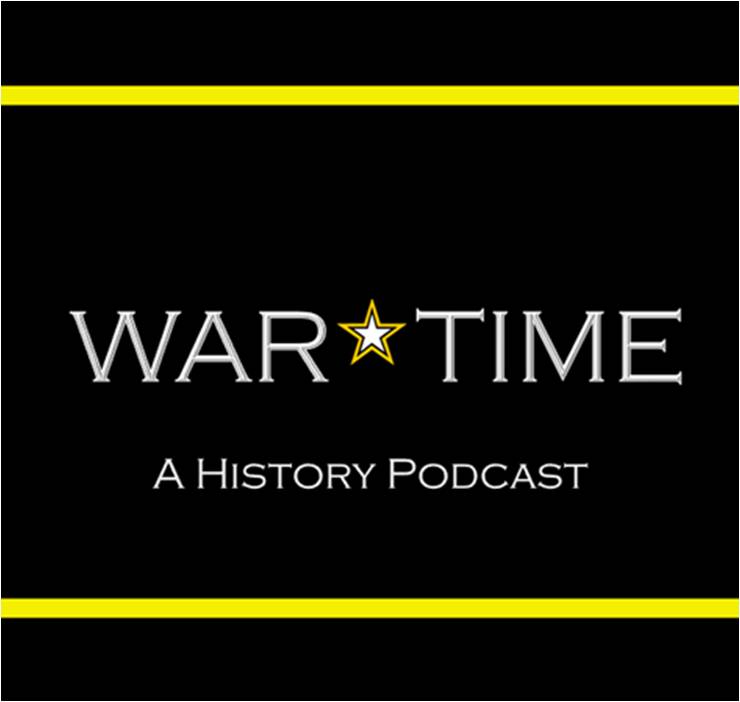
Friday Apr 25, 2014
S02E09: Cyrus the Great and the Rise of Persia
Friday Apr 25, 2014
Friday Apr 25, 2014
Despite its humble beginnings, the Persian Empire would become the largest political force in world history. Although remembered for its lavish building projects and continuous cultural achievements, the Persian world would not have been possible if not for the efforts of one man. Known as Cyrus the Great, this ruler reshaped the world and built the first empire to rule of three river valleys simultaneously. From the Nile to the Indus, Cyrus was one of the only people to truly be deserving of the title great. On this episode we discuss Cyrus rise to power and the birth of the Persian Empire.

Thursday Apr 17, 2014
S02E08: The Babylonian Empire
Thursday Apr 17, 2014
Thursday Apr 17, 2014
After the fall of Mesopotamia’s first great empire, two rivals vied for power in a titanic struggle for the fate of the region. The Babylonians to the south, and the Assyrians to the north, challenged one another for centuries. With a penchant for violence, the Assyrians would build the largest kingdom yet seen, only to have it wiped away with the birth of the mighty Babylonian empire. Still regarded as perhaps the most exquisite city in ancient history, Babylon’s glories ring through the annals of time. On this episode we discuss the Babylonian empire.

